




Our journey began in a book club Two of us, brought together by a shared love for learning, decided to read "Homegoing" by Yaa Gyasi. This powerful story lit a fire within us, sparking a desire to do more than just read about change.
As we delved into our community, visiting landmarks like the National Center for Civil and Human Rights and the Sweet Auburn District, we realized something troubling. While some parts of history were celebrated, others were ignored This disparity fueled our determination to bridge the gap between awareness and action
But navigating today's world isn't easy Big companies often care more about profits than people, making it hard for smaller groups and outreach efforts to be noticed Government rules and social media add more hurdles, leaving many in need struggling to find support
Social media, touted as a way to connect, often ends up drowning out smaller voices. However, as we built our online community, something incredible happened We uncovered a treasure trove of resources we didn't even know existed From local programs to national aid organizations, there was help out there, waiting to be found
But here's the catch: not everyone has the time or know-how to find these resources That's where CUNTS comes in Through our online platform on Discord, we've created a space where people can easily access information about everything from local assistance programs, job opportunities, housing support, mutual aid and outreach events, etc. We also provide education resources on social justice and reform, empowering individuals to take action with local organizations and events in their communities.
But we didn't stop there We understand that not everyone can hop online That's why we take the resources shared in our online community and turn them into tangible outreach We create printed materials like flyers and pamphlets packed with important information, ready to be distributed to those who might not have access to the digital environment
As we continue our journey, we're thrilled to announce the launch of our newest initiative: CUNTS Magazine This magazine isn't just about glossy pages and eyecatching designs; it's a platform for change, education, and community growth
One of the main reasons behind creating CUNTS Magazine is to amplify voices that often go unheard. In a world where certain narratives dominate, marginalized voices can get lost in the noise. Through our magazine, we're giving these voices a platform to be heard, sharing stories that inspire, challenge, and uplift.
But it's not just about storytelling; it's also about education. We believe that knowledge is power, and by educating ourselves and others on social justice issues and advocacy information, we can drive meaningful change In each issue of CUNTS Magazine, you'll find articles, essays, and art that shed light on important topics, helping to spark conversations and ignite action
CUNTS Magazine is also a space for celebration We want to shine a spotlight on the incredible individuals and small businesses within our community
Whether it's highlighting a local artist, showcasing a grassroots organization making a difference, or featuring a small business owner with a powerful story, we're dedicated to uplifting those who make our community thrive.
Through art and education, we aim to connect people, inspire collaboration, and foster meaningful relationships. Each issue of the magazine will serve as a catalyst for growth, sparking new ideas, initiatives, and connections within our network.
So, whether you're a reader looking to be inspired, an activist eager to learn, a small business owner seeking recognition, or an artist hoping to make an impact, CUNTS Magazine has something for you CONNECT
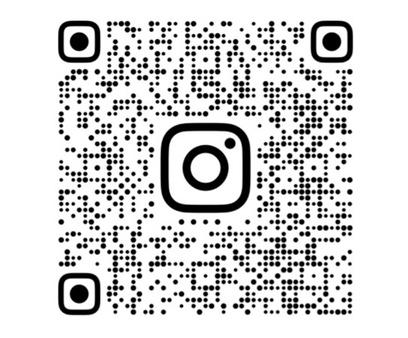


Beyond Stereotypes: The Case for Decriminalizing Sex Work
The
Gender & Genocide: The Plight of Women in Palestine
History of Black Midwives and Racial Disparities in
Doula Services
Life After Roe: 10 Questions with Josie Erdy
TRANScending Boundaries: Visibility, Resilience, Resistance, Neurodiversity in Women Women
Dear Readers,
As you immerse yourselves in the pages of this issue of Community Unity Network for Transformation & Solidarity (CUNTS) Magazine, it's essential to approach discussions with sensitivity and awareness
March is Women's History Month, a time to honor the incredible contributions, resilience, and struggles of women throughout history It is evident that the struggles and triumphs of women are intricately woven into the fabric of society, often overlooked or overshadowed by dominant narratives.
Navigating through the complex landscape of gender, race, ethnicity, and class, it becomes increasingly clear that the struggles faced by women are interconnected. From activism to healthcare, from history to environmentalism, the stories within these pages illustrate the multifaceted nature of women's lives and the importance of understanding their experiences in their entirety.
Through articles that highlight the historical contributions of marginalized groups, shed light on systemic injustices, and celebrate the leadership of women in various fields, we aim to amplify voices that are often silenced and advocate for a more inclusive and equitable world
As you embark on this exploration, may you be inspired by the resilience and determination of women everywhere Let us join hands in solidarity, striving towards a future where every woman is empowered to thrive and her story is valued
With Love & Solidarity,
Stella Evans & Anslee YurcabaEditors/Founders of Community Unity Network for Transformation and Solidarity
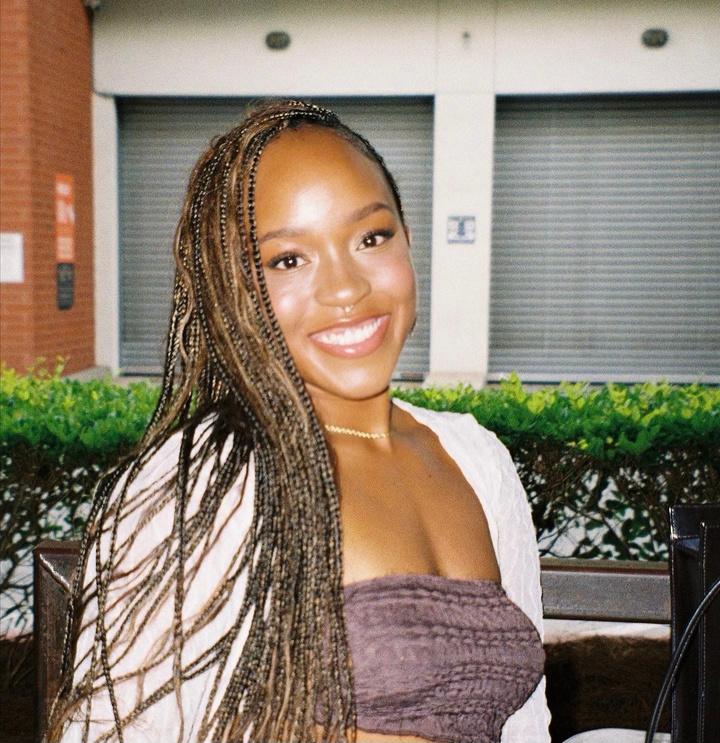
Anslee is an advocate, writer, creator, and cofounder of Community Unity Network for Transformation and Solidarity. Late diagnosed with Autism and ADHD, she leverages her unique perspective to promote acceptance and inclusivity. She is very passionate about taking an intersectional approach to mutual aid and helping communities obtain access to resources. She believes everyone, regardless of race, gender, sexuality, age, job occupation, etc deserves access to all necessities and community resources. Anslee has led many direct actions in Florida and Georgia surrounding reproductive justice and LGBTQ+ Rights. Outside of advocacy and community building, She enjoys hobbies like crocheting, reading, dancing, attending live shows, and creating art.
Stella is an audhd advocate and writer with a passion for educating and empowering youth, sustainable living, equity over equality, and therapy. As a black woman who was late diagnosed with autism and adhd, she understands the barriers that many in her communities face and aims to lessen the obstacles in their path by focusing on pod building and resource sharing in order to support mutual aid initiatives. She received her bachelor's in psychology and is preparing to return to school for her masters in social work to become a therapist. She enjoys the outdoors and hopes to inspire other black people to get out and get dirty!. Alongside her commitment to advocacy, she finds joy in creative pursuits such as crocheting, reading, line dancing, hooping, and playing with her adorable puppy, Winston!
 Anz / Anslee Yurcaba (She/Her)
Anz / Anslee Yurcaba (She/Her)

Writer
Zoe Bambara is a Queer doula, cultural worker, organizer, and writer based in Atlanta, Georgia Zoe has led and participated in many direct actions and protests surrounding state-sanctioned violence and the defense of reproductive justice in Georgia and Kentucky She was the Digital Organizer for Women Engaged, a reproductive justice organization centering Black women, femmes, and girls. She was also the Deputy Director of Rise, a free college advocacy organization that fought for the expansion of investment in students' basic needs while obtaining a B.S. in Psychology from Morris Brown College. She is now the Community and Volunteer Engagement Coordinator for ARC-SE, the largest abortion fund in the southeast She is currently receiving her Doula Certification from Healthy Mothers Healthy Babies and has received a Doula Training certification of completion from Sista Midwives She has received her certification in Childbirth Education and Comfort Measures
Writer
Daniela is an advocate, creator and educator She has a passion for helping others and bringing awareness to topics of marginalized communities. Late diagnosed ADHD and loves to connect with likeminded people. Apart from activism, Daniela enjoys neuroscience and the inner workings of the human body, nature, dancing, and intersectionality of art and medicine
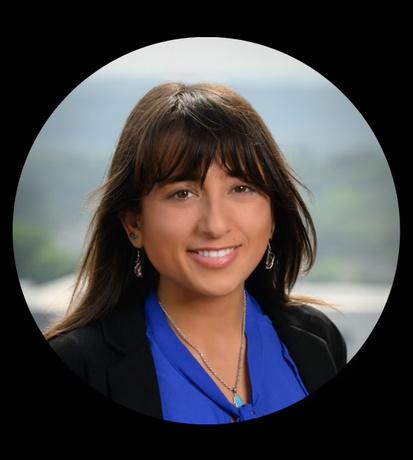
Writer
Devynn Glanz (she/her) is an urban/environmental planner who has a passion for environmental and sustainable advocacy She loves the outdoors and hiking as well as traveling and exploring new activities Devynn received a masters in urban and environmental planning with a graduate certificate in sustainability For her undergraduate degree she majored in urban planning with a minor in design studies and a certificate in food system sustainability. On the weekends Devynn enjoys volunteering on an urban farm and hanging out with friends.
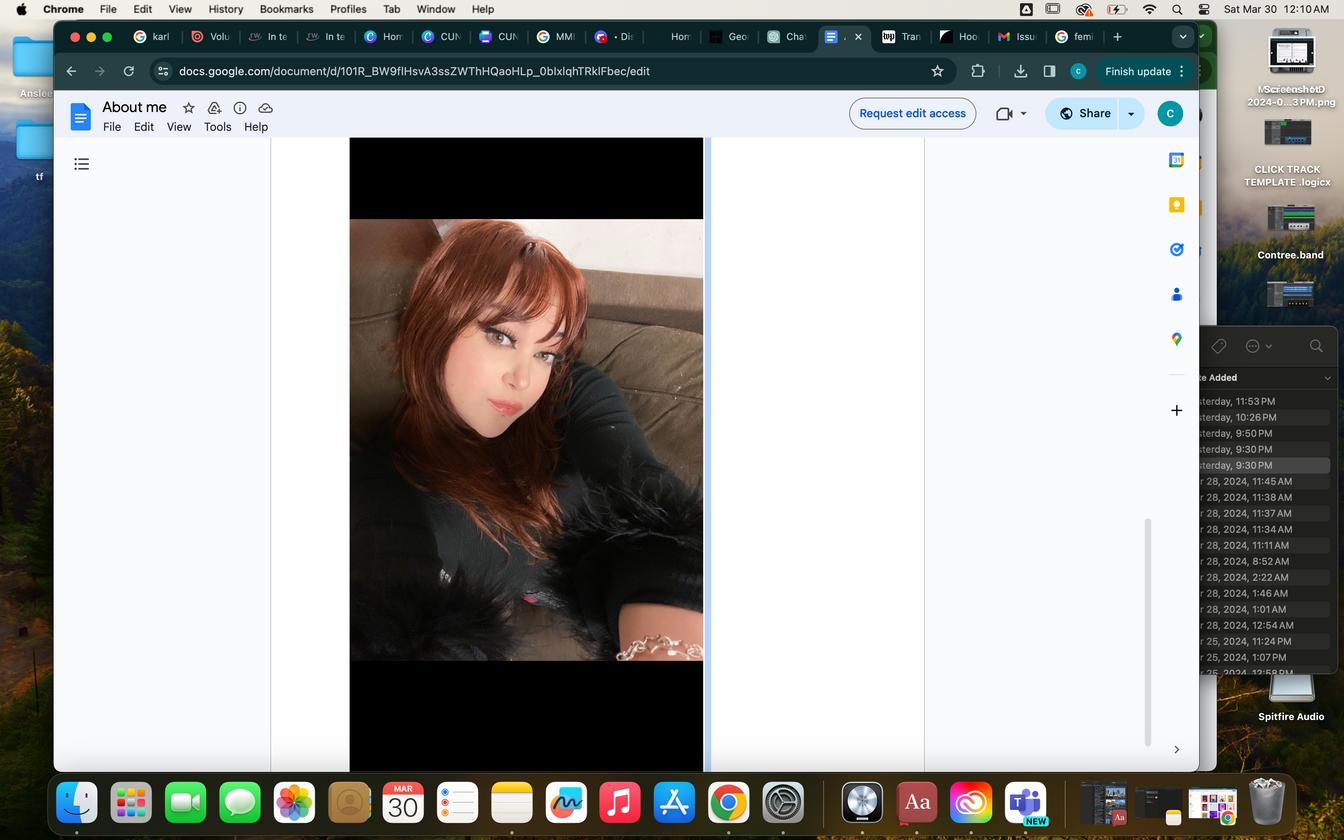
Jeremy Yurcaba is an artist, composer / arranger, and multi-insturmentalist. In his free time he can always be found with a guitar or a pencil in hand, firmly seated next to his wife and two dogs. He is a massive supporter in the freedom of artistic expression, and the importance of using your voice to tell your story how you see fit Jeremy is also an advocate for keeping safe spaces in the many arts communities so those stories can be expressed proudly and without fear, and so the arts can be enjoyed by all who find themselves with an ear to listen, eyes to see, or a mind for understanding
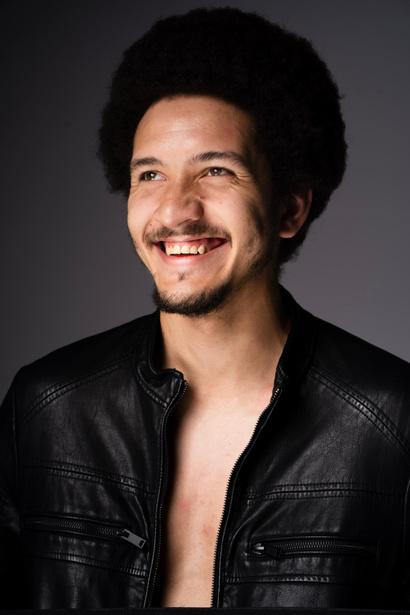 Daniela Martinez (She/Her)
Daniela Martinez (She/Her)
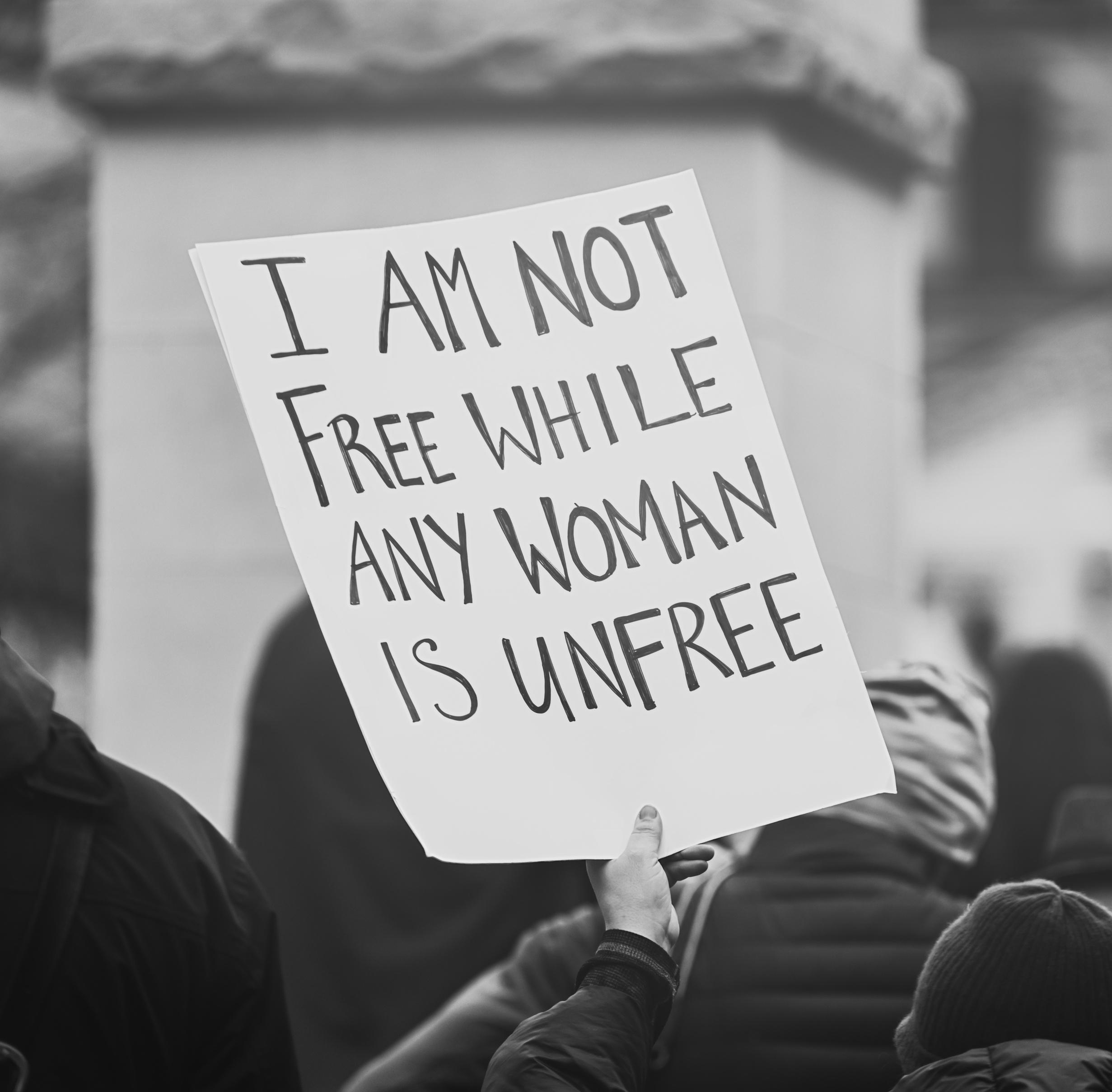

When we think about the roots of feminism, especially in America, we understand the racist white supremacist roots it bloomed from The early suffragist movements, often characterized by a myopic focus on the advancement of rights exclusively for white women, starkly marginalized and denigrated the struggles of Black and other minority women
As claimed by NewAmerica org, “Tracing the roots of white feminism in the United States back to the 1848 Seneca Falls Convention, Beck explains that the founders of the women’s rights movement primarily wanted one thing: “Shared power over systems with men.” Above all, early white feminists wanted to vote. In their pursuit for power, they proved themselves unwilling and uninterested in prioritizing the political enfranchisement of African Americans post-Civil War.
In 1865, Elizabeth Cady Stanton, one of the most prominent figures in the movement, wrote a letter-to-theeditor saying, “..now, as the celestial gate to civil rights is slowly moving on its hinges, it becomes a serious question whether we had better stand aside and see “Sambo” walk into the kingdom first.”
White feminism, from the start, sought “self-preservation,” as Stanton put it, above all things Over the course of a century, white feminists sought power over, rather than liberation from, oppressive systems ”
Understanding this history is imperative, for it underscores the inadequacy of approaches that fail to address the multifaceted intersections of oppression We also have to inspect the “why” of the beginning of the white feminist movements It was because white cisgender heterosexual women saw Black folks not only question their oppressors, but utilized the tools to dismantle those systems of oppression that kept them in chains. White feminists wanted in but did not want to dismantle the master’s house, they wanted to build upon it.
Liberation can not be the goal when you are not examining the disparities amongst the group of people you are fighting with. You will never achieve liberation without community, and community can not and will not exclude the most marginalized groups. We have to to be intersectional. We have to fully understand class and the wealth disparity, conducting solidarity to our people incarcerated, Queer folks, and centering folks who have visible AND invisible disabilities.
-AUDRE LORDENot organizing and advocating on their behalf, but knowing how to utilize your voice and privilege to uplift others.
Kimberley Crenshaw, a Black feminist, states that, "Intersectionality is a metaphor for understanding the ways that multiple forms of inequality or disadvantage sometimes compound themselves and create obstacles that often are not understood among conventional ways of thinking.”
Our fights are intertwined across the Global South and capitalism, imperialism, and the U S empire is the enemy
When you look at policing, specifically Cop City, and Atlanta Police Department’’s commitment to state sanctioned violence is not an isolated incident and doesn’t just impact us. GILEE (Georgia International Law Enforcement Exchange) is a system where Atlanta Police Department Officers travel to Israel (and other colonial and imperialist powers) and teach Israeli occupying forces how to brutalize and terrorize Palestinians.
According to a CAIR Factsheet, “A coalition of Atlanta scholars, faith leaders, civil rights organizations, and human rights activists have called upon Atlanta Mayor Keisha Lance Bottoms to end the Atlanta Police Department’s participation in the Georgia International Law Enforcement Exchange (GILEE), 1 a privately-controlled police exchange program founded in 1992. GILEE arranges for law enforcement officials to train with foreign governments that engage in racial profiling, mass surveillance, arbitrary detention, violence against protesters, sexism, antiSemitism, and Islamophobia ”
If you look on Gilee’s website, you will see different police officers’ accounts of the program, here is one that really caught my attention
“What I was most impressed with about the program was learning how the Israeli Police force was trying new ways to bring diversity to their police force and their police leadership. Diversity and representation is one of the main points of contention in American law enforcement Communities are speaking out about police departments having a balanced representation of the communities they serve It was eyeopening to see those same sentiments were holding true in Israel Any law enforcement leader looking to expand their knowledge base and experience once-in-a-lifetime memorable moments, this program is top notch ”
- Jason P Armstrong, Chief, Ferguson Police Department, MissouriDo you all remember what happened in Ferguson? The slaying of Michael Brown and the violent reaction of the police after the community came together to organize.It is important to realize the connections between the police in Ferguson to Atlanta to the the occupying forces in Israel.
Solidarity must be a verb.

“Our fights are intertwined across the Global South and capitalism, imperialism, and the U.S. empire is the enemy.”
Police states affect everyone. State Sanctioned violence affects all Black and brown women, femmes, and girls. Wee see organizations, made by Black women, that are meant to disrupt the powers at be.
“Launched in December 2014 by the African American Policy Forum (AAPF) and Center for Intersectionality and Social Policy Studies (CISPS), the #SayHerName campaign brings awareness to the often invisible names and stories of Black women and girls who have been victimized by racist police violence, and provides support to their families ”
-AAPF ORGWhen we consider that we actively live in a police state, and how we are targets of state-sanctioned violence; we have to grasp that our attackers travel to other countries, controlled by fascists, sit in board rooms or gun ranges, and discuss not just what tatics they use to harm us, but how to increase terror, violence, and displacement #SayHerName was to created to raise awareness of Black women and girls who have been victimized by police violence, and those same police forces go to other police forces across the Global north and wreak havoc
More than 25,000 women and children have been killed in Palestine by occupying forces Everything is connected.

The Reproductive Justice movement, which was a term coined by Black women, vaticinated the overturning of Roe V Wade and warned this country that our rights were at stake We needed something more than Roe V Wade We didn’t want permission, we wanted protection After the turning of Roe V Wade, we saw pink pussy hats and Handmaid Tale costumes and no recognition that Black women have the highest maternal mortality rate, and Black babies have the highest infant mortality rate We are seeing a surge in hospital closures across rural areas that will of course, disproportionately affect Black, Brown, and poor folks
“THERE IS NO SUCH THING AS A SINGLE-ISSUE STRUGGLE BECAUSE WE DO NOT LIVE SINGLEISSUE LIVES.”
AUDRE LORDE
According to Sister Song, We must “Analyze power systems Reproductive politics in the US is based on gendered, sexualized, and racialized acts of dominance that occur on a daily basis RJ works to understand and eradicate these nuanced dynamics
Address intersecting oppressions Audre Lorde said, “There is no such thing as a single-issue struggle because we do not live single-issue lives ” Marginalized women face multiple oppressions and we can only win freedom by addressing how they impact one another
Center the most marginalized Our society will not be free until the most vulnerable people are able to access the resources and full human rights to live selfdetermined lives without fear, discrimination, or retaliation Join together across issues and identities All oppressions impact our reproductive lives; RJ is simply human rights seen through the lens of the nuanced ways oppression impacts selfdetermined family creation The intersectionality of RJ is both an opportunity and a call to come together as one movement with the power to win freedom for all oppressed people ”
The fight for reproductive justice is not solely about personal choice but also about dismantling oppressive systems that perpetuate inequality and injustice. We can connect the acts of forced sterilizations in Puerto Rico to the forced sterilizations of Ethiopian women by the Occupying Israeli forces, to the forced sterilizations that happen in women prisons across this country. Victories in this struggle benefit everyone, underscoring the imperative of community-building across the Global South.
“WHENEVER YOU CONCEPTUALIZE SOCIAL JUSTICE STRUGGLES, YOU WILL ALWAYS DEFEAT YOUR OWN PURPOSES IF YOU CANNOT IMAGINE THE PEOPLE AROUND WHOM YOU ARE STRUGGLING AS EQUAL PARTNERS.”
ANGELA Y. DAVIS, FREEDOM IS A CONSTANT STRUGGLE: FERGUSON, PALESTINE, AND THE FOUNDATIONS OF A MOVEMENT
YOUR FEMINISM SHOULD BE ANTI-RACIST, ANTI-WAR, ANTI-CAPITALIST, AND ANTIIMPERIALIST.
AN ANTI-RACIST FEMINISM ACKNOWLEDGES AND CONFRONTS THE WAYS IN WHICH RACISM INTERSECTS WITH GENDER OPPRESSION, RECOGNIZING THAT WOMEN OF COLOR FACE UNIQUE FORMS OF DISCRIMINATION AND VIOLENCE. THIS INCLUDES NOT ONLY THE RECOGNITION OF ANTI-BLACKNESS IN EVERY SINGLE CULTURE, BUT THE CONSISTENT FIGHT AGAINST IT. ANYONE CAN BE ANTI-BLACK, INCLUDING PEOPLE OF COLOR.
AN ANTI-WAR FEMINISM RESISTS THE MILITARY-INDUSTRIAL COMPLEX, CRITIQUING HOW MILITARISM PERPETUATES VIOLENCE, EXPLOITATION, AND DISPLACEMENT.
AN ANTI-CAPITALIST FEMINISM CALLS FOR THE DESTRUCTION OF THE CAPITALIST SYSTEM'S EXPLOITATION OF LABOR, UNEQUAL DISTRIBUTION OF RESOURCES, AND REINFORCEMENT OF PATRIARCHAL POWER STRUCTURES.
AN ANTI-IMPERIALIST FEMINISM CHALLENGES COLONIAL NARRATIVES AND PRACTICES, ADVOCATING FOR SELF-DETERMINATION, SOVEREIGNTY, AND DECOLONIZATION.
I am not the first person to connect these dots, and I won’t be the last. It is imperative to recognize that we come from a society, a country, an empire that hyper focuses on individuality. We have a president who dangles the promises of healthcare, student debt elimination, and abortion access (barely), but it is conducting a genocide and inciting other forms of violence in multiple countries. Is your potential access to healthcare more important than the lives on the Gaza Strip? Is your potential student debt elimination more important than the children in the Congo who are dying in coal mines? Is your potential access to abortion more important than the lives in Cuba who are facing hunger and lack of medical access due to United States sanctions? The global south is your community! These are the folks you should be in solidarity with every single day, not an empire that swings promises of basic needs in your face. You deserve more. Your community deserves more. The globe deserves more.
As someone who is a Gen Z individual, who was once a liberal, who was once excited about voting for a president for the first time, you have to start to question any and everything. Why am I voting for someone who promised to codify Roe V. Wade, and failed to do so, but in the same breath gives the police more money and power to kill not only me, but any community that dares to question them? We must challenge everything, and understand that the empire wants to work us until they feel the need to kill us, and we have to fight together, in solidarity, to achieve a liberated world. That is the foundation of being an intersectional feminist.
Your chains are no different than mine. They may be a different metal, but they were manufactured by the same empire.
We are not free, till we are all free!
Black Blessings.
SCAN BELOW FOR 4 WAYS TO LEARN ABOUT INTERSECTIONAL FEMINISM NOW BY POINT FOUNDATION
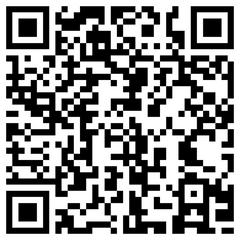
SUPPORT YOUR WRITER!
SCAN BELOW TO CHECK OUT BAMBARA BLOOM AND HEAL, A COMPASSIONATE AND INCLUSIVE DOULA SERVICE
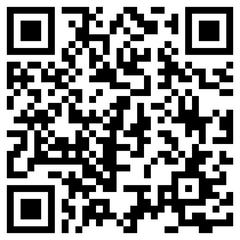
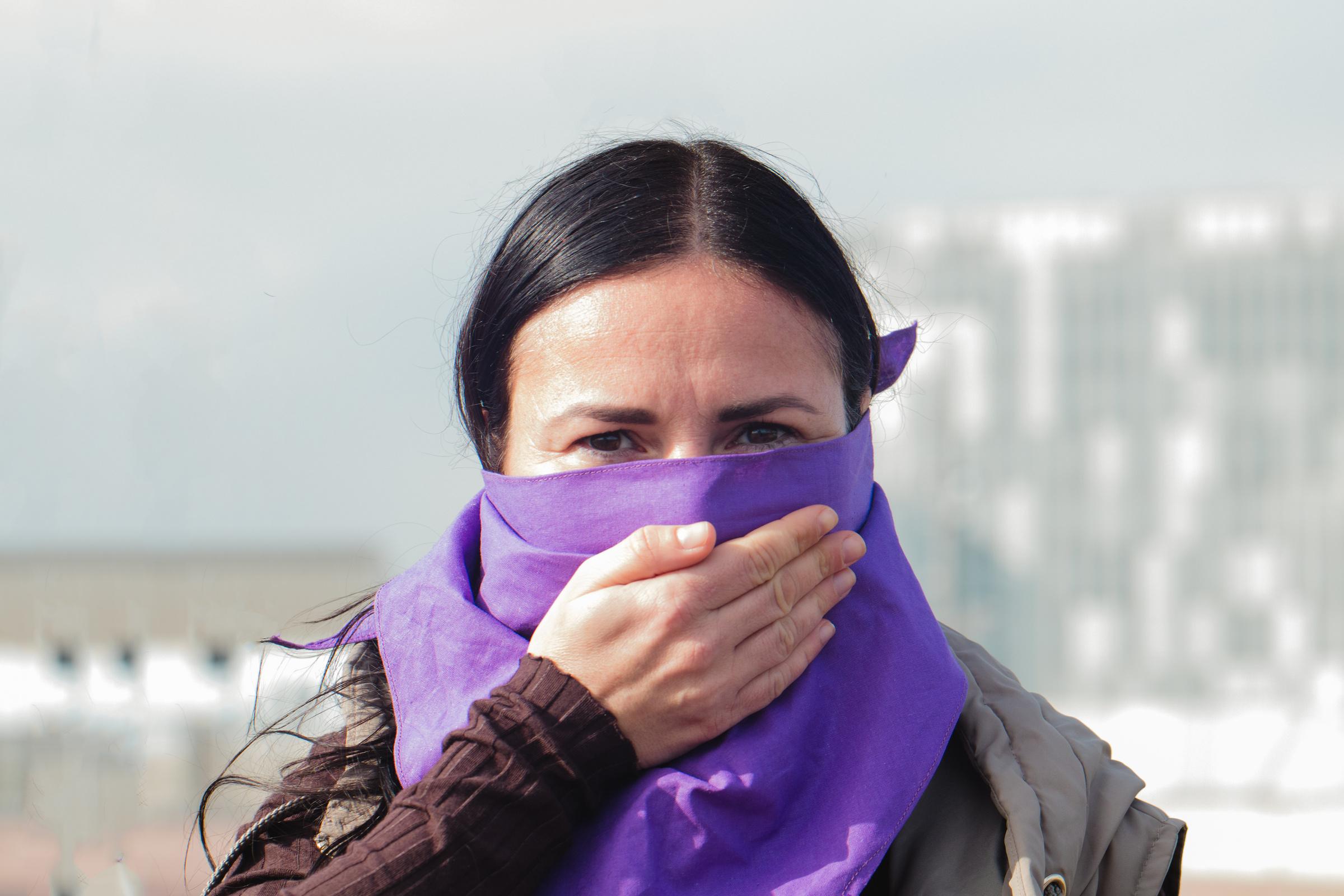


A serious issue that is affecting women, specifically Indigenous and Hispanic communities is “Femicide”. It is defined as the killing of women because of their gender and is a form of genderbased violence
For Indigenous communities, femicide is usually linked to colonization, displacement and marginalization These women experience high rates of violence, with studies showing that they are more likely to experience femicide compared to women of other racial or ethnic backgrounds. Women in indigenous communities are at an increased vulnerability because of lack of access to healthcare and resources, and lawful presence
In Hispanic communities, femicide is a widespread problem that is often overlooked due to gender stereotypes and cultural norms The patriarchal belief system that values male dominance and control over women called, “Machismo”, can lead to violence against women and ultimately, femicide Limited access to resources, fear of deportation or being shamed by family, as well as language barriers can prevent Hispanic women from seeking help or reporting abuse
More often than not, femicide within Indigenous and Hispanic communities are often underreported and overlooked by law enforcement and the judicial system The lack of recognition of this problem allows perpetrators to continue committing acts of violence against women. Every year the violence continues and gets worse. In 2022, a minimum of 4,050 women were victims of femicide in 26 counties and territories of Latin America and the Caribbean, according to the latest data that official agencies reported to the Gender Equality Observatory for Latin America and the Caribbean (GEO) of the Economic Commission for Latin America and the Caribbean (ECLAC) This is equivalent to one gender-related killing of a woman every two hours in the region. Due to systemic barriers and underreporting of cases, it is likely that the actual statistics of femicide in these communities are higher than reported
It is essential for governments and organizations to address the root causes of violence against women As a community, we have a big impact on what changes we can make to impact others lives, especially those of women and marginalized groups.

To combat femicide in Hispanic and Indigenous communities, it's crucial to tailor strategies to address cultural nuances and systemic challenges This includes:
Raising Awareness:
Conduct culturally sensitive awareness campaigns through community leaders and media outlets.
Supporting Victims:
Provide accessible and culturally competent support services, partnering with community-based organizations
Education and Empowerment:
Empower women through bilingual education, vocational training, and cultural pride initiatives
Legal Reforms and Enforcement:
Ensure legal systems are culturally competent, incorporating indigenous legal traditions and providing support throughout legal proceedings.
Addressing Root Causes:
Tackle poverty, marginalization, and historical trauma through community-led initiatives and economic development
Engaging Men and Boys:
Challenge traditional gender roles and engage male leaders in promoting healthy masculinity and respectful relationships.
By implementing these tailored strategies, we can work towards preventing femicide and promoting gender equality within Hispanic and Indigenous communities.
SCAN HERE FOR RESOURCES TO USE AS A STEPPING STONE TO OPEN YOUR MIND TO THESE ISSUES THAT IS A REALITY FOR MANY RIGHT NOW
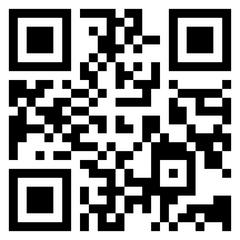
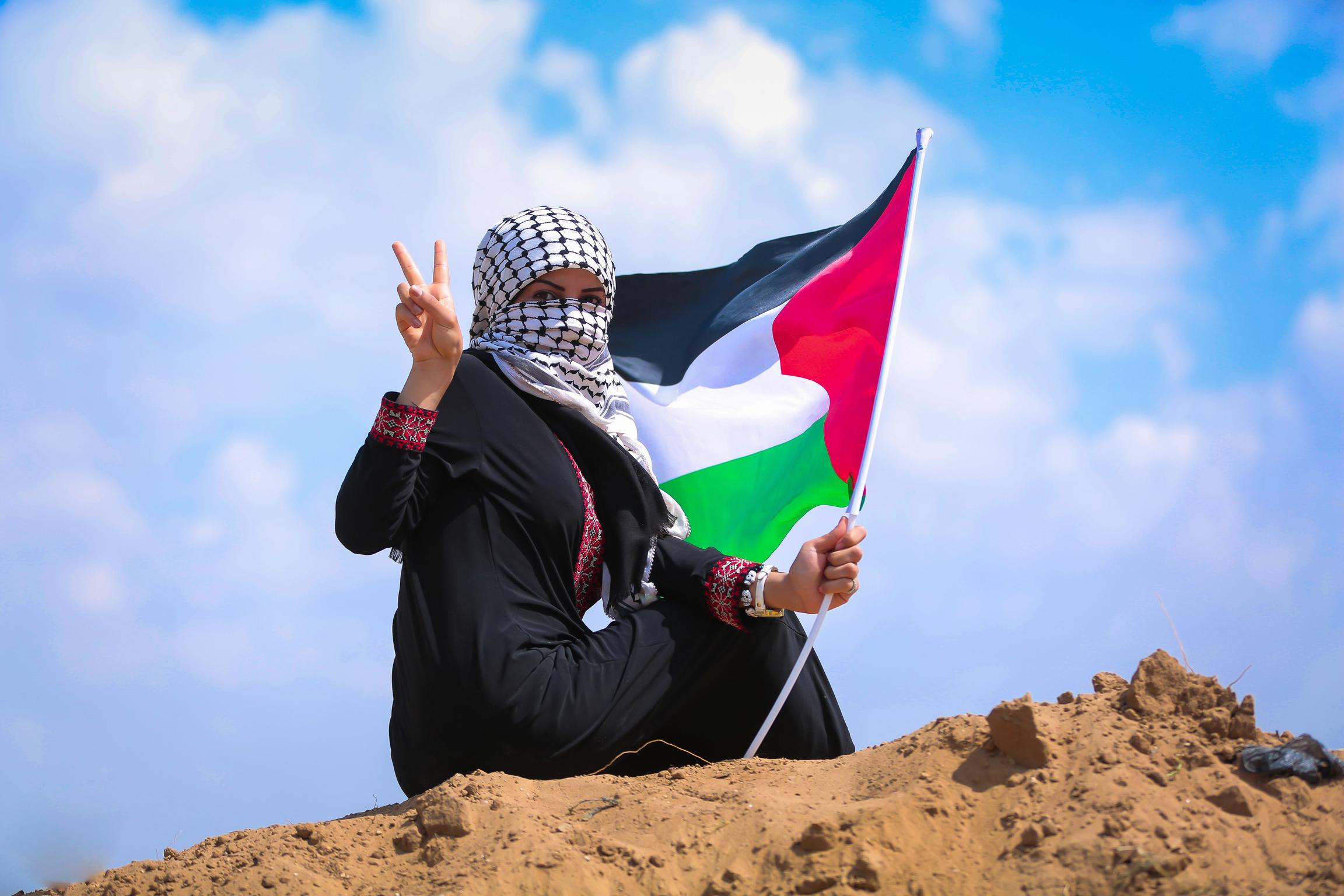

Amidst the headlines of geopolitical turmoil and diplomatic dispute, there exists a narrative often overlooked
story of Palestinian women.
In the shadow of the Israeli-Palestinian conflict, voices echo with resilience and defiance, calling for recognition and solidarity from across the globe From the streets of Gaza to the West Bank, Palestinian women navigate a landscape of hardship and struggle, yet they continue to stand firm, demanding attention and action.
We gain a glimpse into the realities faced by Palestinian women through testimonies of unspeakable hardship and suffering Their voices demand to be heard – for theirs is a narrative of survival, strength, and unwavering determination.
The current violence is not a new occurrence but a continuation of historical injustices.
Recent headlines may paint the IsraeliPalestinian conflict as a sudden eruption of violence, but its roots run deep in a history plagued by oppression The establishment of the state of Israel in 1948, known as the Nakba or "Catastrophe," set the stage for decades of conflict and resistance. Armed Zionist militias forcibly displaced hundreds of thousands Palestinians and subjected them to widespread violence, including massacres, rapes, and humiliation The Nakba shattered communities, destroyed homes, and upended livelihoods, casting a dark shadow over Palestine that continues to shape the ongoing conflict today
Following wars, including the Six-Day War in 1967, further escalated the conflict, resulting in the occupation of the West Bank, including East Jerusalem, and the Gaza Strip by Israeli forces. With recent events capturing global attention, it is essential to recognize that the current violence is not a new occurrence but a continuation of historical injustices
The effects of military control, settler colonialism, and displacement have had a devastating impact on Palestinian communities, exacerbating existing inequalities and vulnerabilities The fragmentation of Palestinian communities due to the construction of Israeli settlements and the separation barrier has further marginalized women. The separation barrier, often referred to as the Israeli West Bank barrier, consists of a combination of fences, walls, and checkpoints According to the OCHA “Movement and Access in the West Bank” Fact Sheet, “OCHA documented 565 movement obstacles in the West Bank, including East Jerusalem and excluding H2 These include 49 checkpoints constantly staffed by Israeli forces or private security companies, 139 occasionally staffed checkpoints, 304 roadblocks, earth-mounds and road gates, and 73 earth walls, road barriers and trenches ” (1) The barrier disproportionately affects women and children Palestinian women in areas under occupation face daily challenges, including arbitrary detention, harassment at checkpoints, and violence from Israeli settlers and soldiers
Recent testimonies documented by EuroMed Human Rights Monitor, gives a glimpse of the physical and psychological torment that is inflicted upon women during their detention
The women endured a litany of atrocities, including sexual violence, torture, inhuman treatment, strip searches, sexual harassment, and rape.
“We were searched while we were completely naked, inside a closed-off area, and the female soldiers beat us severely and continuously”
A 45-year-old woman from Gaza City's Sheikh Radwan area, identified as 'N.H.', shared her harrowing experience with the Euro-Med Monitor team. She was arrested by Israeli forces on December 28, 2023, taken from a UN-operated school housing refugees and held captive for 43 days According to N H , the Israeli army stormed the school at dawn and the women were ordered to go into a room for a “medical check-up” After entering the room, said N H , “We were searched while we were completely naked, inside a closed-off area, and the female soldiers beat us severely and continuously.” (2). She described the indignity of being detained in conditions like "a cage for animals," (2) shackled in cold with no access to basic necessities or medical care Even after release, the trauma persisted as she faced threats of being separated from her children if she didn't cooperate with Israeli investigators
Throughout it all, she endured constant harassment, with soldiers callously photographing her suffering without regard for her well-being
In further testimony, a 20-year-old resident of the Jabalia refugee camp in the northern Gaza Strip, identified as "S.D.," recalled her 50 days of detention. She vividly described her arrest: her hands tied behind her back, blindfolded, and subjected to a violating search “The conditions of detention were extremely harsh; I strained a muscle in my handcuffed hand and an Israeli female soldier struck me hard on my back when I attempted to move,” S D told Euro-Med Monitor “We were left on a sidewalk for approximately an hour before being given gray prison clothes. We were then made to walk in a line while being teased and humiliated. Afterward, we were taken to a location that resembled a hellish cage, where we were deprived of basic necessities like food and toilets " (2) She continued sharing the brutality and unsanitary conditions they were victims to, "We were subjected to nasty verbal abuse and foul language," "We were only allowed to use sanitary pads in extremely small amounts not enough for even a single day and bathe infrequently " (2) The mistreatment did not end there. The soldiers continued harassing them and prevented them from praying. After eight days, S D was transferred to Damon Prison, where she faced further brutality "One of the female soldiers took the blindfold off my eyes and asked me to kiss the Israeli flag during the transfer process," she said. (2) She refused and suffered severe beatings and continued assault for retaliation
The Euro-Med Human Rights Monitor's documentation reveals the deliberate tactics employed by Israeli forces to instill fear and degradation. The women described feeling utterly powerless and stripped of their dignity as they were subjected to verbal abuse and humiliation The threat of sexual violence loomed ominously, used as a tool of coercion to force compliance and silence dissent These testimonies not only highlight the urgent need for accountability for the perpetrators of these crimes but also underscore the importance of international solidarity in supporting Palestinian women's rights. We must be actively advocating for an end to the systemic violence and discrimination they face By amplifying their voices and bearing witness to their suffering, we can contribute to the broader struggle for justice and dignity for all Palestinians.
Global solidarity plays a crucial role in advocating for Palestinian Rights We must stand in solidarity with Palestinian women, individuals and organizations worldwide and demand accountability for the injustices they face. International advocacy efforts shed light on the systemic violations of human rights and gender equality perpetuated by Israeli authorities, bringing attention to the urgent need for change. It's essential to recognize that similar challenges exist for women in other conflict zones. The interconnectedness of conflicts goes beyond politics and into their shared impact on women's lives and rights Women in these regions face similar struggles against systemic oppression, violence, and marginalization, rooted in intersecting forms of discrimination

As we bear witness to the atrocities, we must take immediate and concrete action. Advocacy is crucial in holding accountable those responsible for perpetuating injustice Advocacy must integrate into everyday conversations to foster greater awareness and empathy
By initiating conversation addressing the harsh realities of occupation and conflict, we can actively educate and nurture solidarity We must support initiatives, organizations, and advocacy efforts prioritizing those facing injustice These efforts include providing support to grassroots organizations that empower Palestinians, advocating for policy changes that address gender-based discrimination and violence, and demanding accountability for human rights violations perpetrated against women and children in conflict zones Individuals can engage in solidarity actions such as boycotts, divestment, and sanctions to pressure governments and corporations to respect Palestinian rights and uphold international law
1) Office for the Coordination of Humanitarian Affairs (OCHA) "Movement Restrictions in the Occupied Palestinian Territory - 2023 "
Accessed [March 2024] [URL: https://www ochaopt org/2023-movement]
(2) Euro-Mediterranean Human Rights Monitor "In testimonies to Euro-Med Monitor, women from Gaza report being subjected to sexual violence, torture by Israeli forces." Euro-Mediterranean Human Rights Monitor Accessed [March 2024] [URL: https://euromedmonitor.org/en/article/6188/ In-testimonies-to-Euro-Med-Monitor,women-from-Gaza-report-being-subjectedto-sexual-violence,-torture-by-Israeliforces]
Reflecting on the testimonies of Palestinian women, it becomes clear that their voices must not be silenced or overlooked Addressing the atrocities faced by Palestinian women is not just a moral imperative but a call to action for all of us Let us not be bystanders to the suffering, but active participants in the journey toward justice and equality Let us pledge to be agents of change, to challenge oppression wherever it exists, and to work tirelessly towards a future
Pick an appropriate time and place for the conversation. Ensure that both you and the person you ' re engaging with are in a calm and receptive state of mind Avoid initiating discussions in heated or tense environments where emotions may run high
Approach the conversation with empathy and understanding Acknowledge the complexities and sensitivities of the issue, and express empathy for the suffering experienced by both Palestinians and Israelis as a result of the conflict.
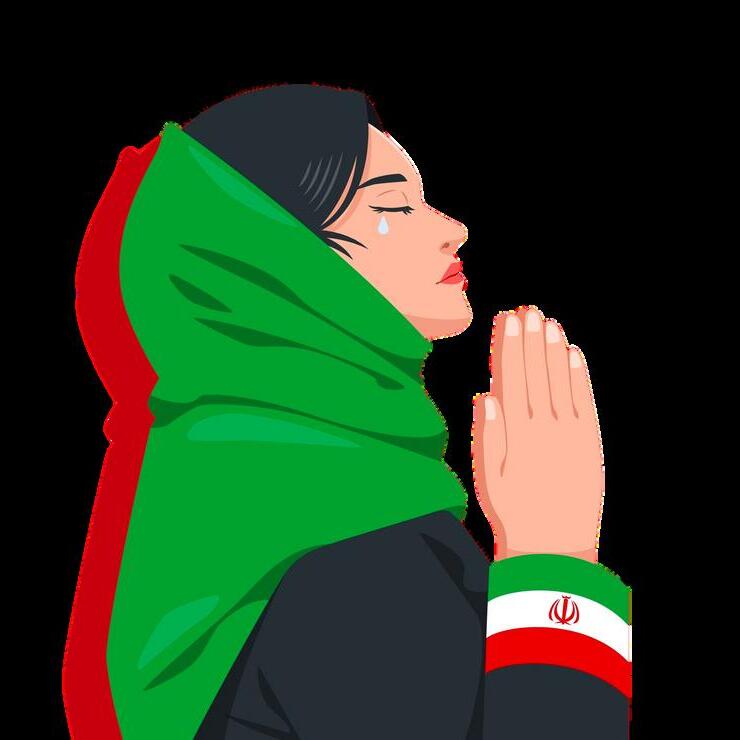
Frame the conversation around values such as human rights, justice, equality, and peace Highlight the universal principles that underpin the free Palestine movement, emphasizing the importance of dignity, freedom, and selfdetermination for all peoples
Discuss the urgent need for a ceasefire in the region to prevent further loss of life and alleviate the humanitarian crisis Emphasize the importance of diplomatic efforts, international pressure, and mediation to facilitate a cessation of hostilities and create space for dialogue and negotiation
llustrate the human impact of the conflict by highlighting the stories of individuals affected by occupation, displacement, or violence. Personal narratives can foster empathy and emotional connection, making the issue more relatable to the other person
Discuss the impact of economic boycotts on companies and institutions complicit in human rights violations, and advocate for ethical consumerism as a means of promoting accountability and justice
Encourage the other person to share their perspectives, experiences, and concerns related to the issue Avoid interrupting or dismissing their viewpoints, and strive to understand their perspective fully before responding. Ask open-ended questions that promote reflection and deeper understanding
Maintain a calm and respectful demeanor throughout the conversation, even in the face of disagreement or differing opinions Avoid resorting to personal attacks, insults, or aggression Focus on addressing the issue at hand with civility and mutual respect
Move the conversation towards constructive solutions and actions that can contribute to positive change Discuss potential avenues for advocacy, solidarity, and support for the Palestinian cause, such as grassroots activism, fundraising efforts, educational initiatives, or political engagement
Recognize that meaningful dialogue about complex issues like the free Palestine movement may require multiple conversations over time Follow up with the other person after the initial discussion, and continue to engage in respectful dialogue, exchange of ideas, and mutual learning.
63Women
+50,000 Women in Gaza are pregnant without access to healthcare
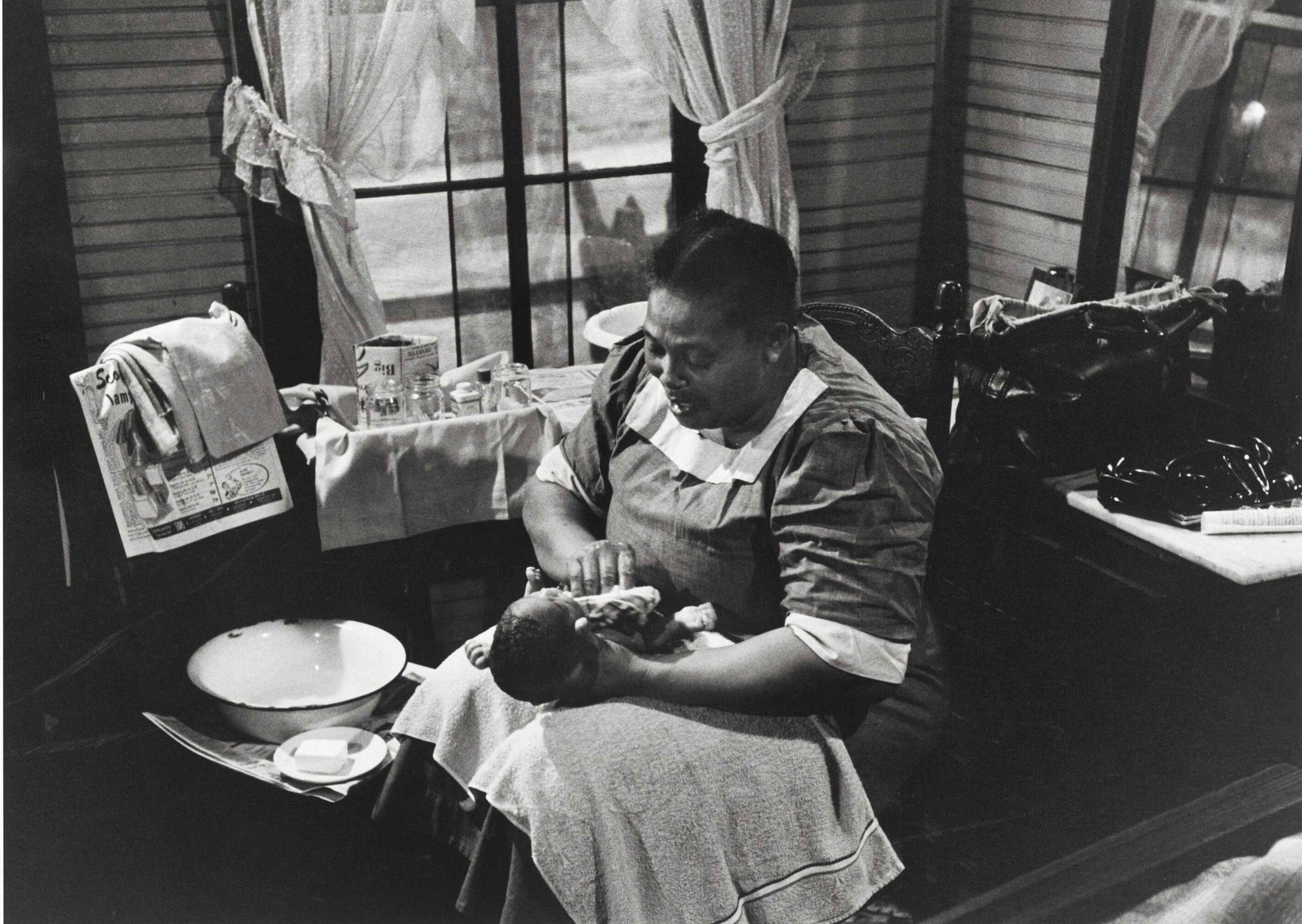


To understand why these statistics are concerning, we must look back into the history of midwifery in America. Before the midwives known today, there were Granny midwives, and before them were Mammies The mammy caricature is often depicted with bright red cheeks and lips, her exuberant grin gleaming with pride in her job and love for her masters. She was crafted to depict Black women as content, perhaps even happy, with their lives as slaves. This stereotype was aimed to reassure white people, especially women, that the violence they committed against their black counterparts was not in fact terrible.

In 2021, reports indicated that only 7 percent of certified midwives in the United States identified as Black or African American, while 86 percent identified as white. It's tempting to overlook these figures, attributing the lack of Black women in the field to personal choice or disinterest. However, the reality is far more complex and troubling.
It could not be, because they were happy In truth, Mammies were far from content Often separated from their own children, they nursed the children of their enslavers, cared for them as their own, and managed the household for the white women they were forced to serve.
Black women were treated as commodities, subjected to beatings, breeding, and exploitation. The perception of Black people as akin to animals, resilient to pain, was evident in the treatment of Black slaves during and after pregnancies
Compared to the care given to white mothers, enslaved women received little prenatal or postnatal attention. Although they were fed more and made to work in the fields less, the stress of being treated as an animal did not allow for pregnancy to be a joyful experience It was not uncommon for these women to endure childbirth or miscarriage only to return to the fields the next day. Their pain was untreated and considered to be nonexistent.
“MAMMY WAS BOTH THE PERFECT MOTHER AND THE PERFECT SLAVE: WHITES SAW HER AS A “PASSIVE NURTURER, A MOTHER FIGURE WHO GAVE ALL WITHOUT EXPECTATION OF RETURN, WHO NOT ONLY ACKNOWLEDGED HER INFERIORITY TO WHITES BUT WHO LOVED THEM.” IT IS IMPORTANT TO RECOGNIZE, HOWEVER, THAT MAMMY DID NOT REFLECT ANY VIRTUE IN BLACK MOTHERHOOD.” - DOROTHY ROBERTS, KILLING THE BLACK BODY: RACE, REPRODUCTION, AND THE MEANING OF LIBERTY
Even after the abolition of slavery, Black midwives, formerly Mammies, remained integral to healthcare and maternity care, particularly in the South. However, as medical science progressed and hospital access expanded, healthcare professionals advocated for hospital births attended by doctors and nurse-midwives, leading to a decline in midwifesupported births.
Despite attending up to 75% of births until the 1940s, Black midwives found themselves excluded from the profession they had long dominated. A path that was once one of their only callings, was now almost exclusive to white women who actively excluded black women from their schools, which made it impossible for them to get the certifications needed to practice the midwifery that they had taken part in for generations.
“Oneofthe darkest momentsinUS historywasthe systematic eradicationof theAfrican American midwifefrom hercommunity, resultingina legacyofbirth injustices.”ShafiaMunroe
With the decline of Black midwives, Black women increasingly relied on white doctors and nurses who often viewed them as similar to animals. White women were prioritized in hospitals, leaving Black women to fend for themselves. Now that black mothers and children could not be used for the benefit of white people, their survival was less important, and treated as such.
Over time, midwifery dwindled, with even white midwives becoming scarce Maternal mortality rates declined with medical advancements, but Black women remained disproportionately affected. Today, pregnancy-related mortality rates in black women are 2-3 times higher than those of white women, and the explanation has not changed from previous years. We have better medicine, better facilities, safer methods, and black women are still dying. They don’t care, so they don’t act
A 2016 study revealed that healthcare professionals consistently distrust Black patients seeking medical assistance. Forty-seven percent of physicians are more likely to underestimate the pain of Black patients compared to white patients, resulting in inadequate treatment and diagnoses The enduring stereotype of the strong Black woman, rooted in the treatment of slaves, continues to affect Black Women in their efforts to seek help for modern issues that are more easily solved for their white counterparts.
Recent research indicates that African American women are more likely than white women to experience persistent feelings of sadness, hopelessness, and worthlessness, yet only a small fraction seek help The expectation of enduring pain silently, embodying the superwoman schema, continues to writhe within us.
In recent years, midwives and doulas have emerged as alternatives for those seeking different or additional maternity care options. While this trend is promising, the barriers that have prevented Black women from entering the field since the 1940s persist in 2024 With a lack of trust in medical professionals due to ongoing neglect and a scarcity of Black professionals where we could use them the most, black women are left to squander and care for themselves.
Change is overdue.

AS ALLIES, IT'S IMPERATIVE TO SUPPORT BLACK AND BROWN MIDWIVES, ADVOCATE FOR THOSE WHO ARE UNDERREPRESENTED AND UNDERSERVED, AND CONFRONT THE STARK REALITIES OF HEALTHCARE DISPARITIES DON'T TURN A BLIND EYE TO THE STATISTICS; SPEAK OUT AND TAKE ACTION
NANDI CAN BE REACHED VIA EMAIL AT ZOZADOULASERVICES@GMAIL.COM
BY PHONE 770-372-4846 AND CAN BE FOLLOWED ON SOCIAL MEDIA @ ZOZADOULA
NANDI IS AN INSPIRING INDIVIDUAL DEEPLY EMBEDDED IN THE REPRODUCTIVE HEALTH/JUSTICE SPACE, SERVING AS A BEACON OF SUPPORT AND ADVOCACY FOR MARGINALIZED COMMUNITIES. WITH OVER 13 YEARS OF EXPERIENCE, SHE HAS TRAVERSED VARIOUS ROLES FROM HEALTH-PEERS TO ABORTION ADVOCACY AND NOW AS A DOULA, ENCOMPASSING FULL SPECTRUM DOULA USEFULNESS INCLUDING ABORTION SUPPORT, CHILDBIRTH EDUCATION, AND YOGA INSTRUCTION, PARTICULARLY PRENATAL YOGA.
HER JOURNEY REFLECTS A PROFOUND COMMITMENT TO EMPOWERING PREGNANT INDIVIDUALS AND THEIR FAMILIES, ENSURING THEIR WELL-BEING AND ADVOCATING FOR THEIR RIGHTS. NANDI'S ADVOCACY EXTENDS TO SUPPORTING INCARCERATED PREGNANT INDIVIDUALS, FACILITATING HIV/STI PREVENTION EDUCATION, AND AIDING PREGNANT AND POSTPARTUM INDIVIDUALS IN RECOVERY, ALL WHILE FOCUSING ON MARGINALIZED COMMUNITIES' WELLNESS.
NANDI'S DEDICATION TO HER PROFESSION IS EVIDENT IN HER CONTINUOUS PURSUIT OF EDUCATION, AS SHE COMPLETES HER BACHELOR'S DEGREE IN WOMEN'S, GENDER, AND SEXUALITY STUDIES BEYOND HER PROFESSIONAL ENDEAVORS, SHE FINDS SOLACE IN REST, MUSIC, DANCING, AND NURTURING HER ROLE AS A MOTHER TO HER TWO CHILDREN.
NANDI'S MULTIFACETED APPROACH TO SUPPORTING BIRTHING PEOPLE UNDERSCORES HER HOLISTIC PERSPECTIVE ON WELLNESS, EMPHASIZING NOT ONLY PHYSICAL HEALTH BUT ALSO EMOTIONAL AND SOCIAL WELL-BEING. SHE STANDS AS A TESTAMENT TO THE TRANSFORMATIVE POWER OF COMPASSIONATE CARE AND ADVOCACY WITHIN THE REPRODUCTIVE HEALTH SPHERE
AT BAMBARA BLOOM & HEAL, OUR MISSION IS TO PROVIDE COMPASSIONATE AND INCLUSIVE DOULA CARE FOR INDIVIDUALS NAVIGATING TRANSFORMATIVE LIFE EXPERIENCES, INCLUDING POSTPARTUM, ABORTION, STILLBIRTH, MISCARRIAGE, AND CHALLENGING MENSTRUAL CYCLES. WITH A COMMITMENT TO A DECOLONIZED LENS, WE SUPPORT TRANS AND GENDERQUEER/NONCONFORMING INDIVIDUALS UNDERGOING GENDER-AFFIRMING SURGERIES. WE ASSIST QUEER AND TRANS FOLKS THROUGHOUT THE BIRTHING JOURNEY, OFFERING A SAFE, AFFIRMING, AND PROTECTIVE SPACE IN AND OUT OF THE HOSPITAL. WE AIM TO EMPOWER AND NURTURE INDIVIDUALS DURING TIMES OF VULNERABILITY, FOSTERING A COMMUNITY THAT CELEBRATES DIVERSE EXPERIENCES AND ENSURES THAT NO ONE WALKS THEIR JOURNEY ALONE. BAMBARA BLOOM & HEAL: CULTIVATING CARE, EMBRACING INCLUSIVITY, AND NURTURING HEALING.

ZOE CAN BE REACHED VIA INSTAGRAM @BAMBARABLOOMANDHEAL
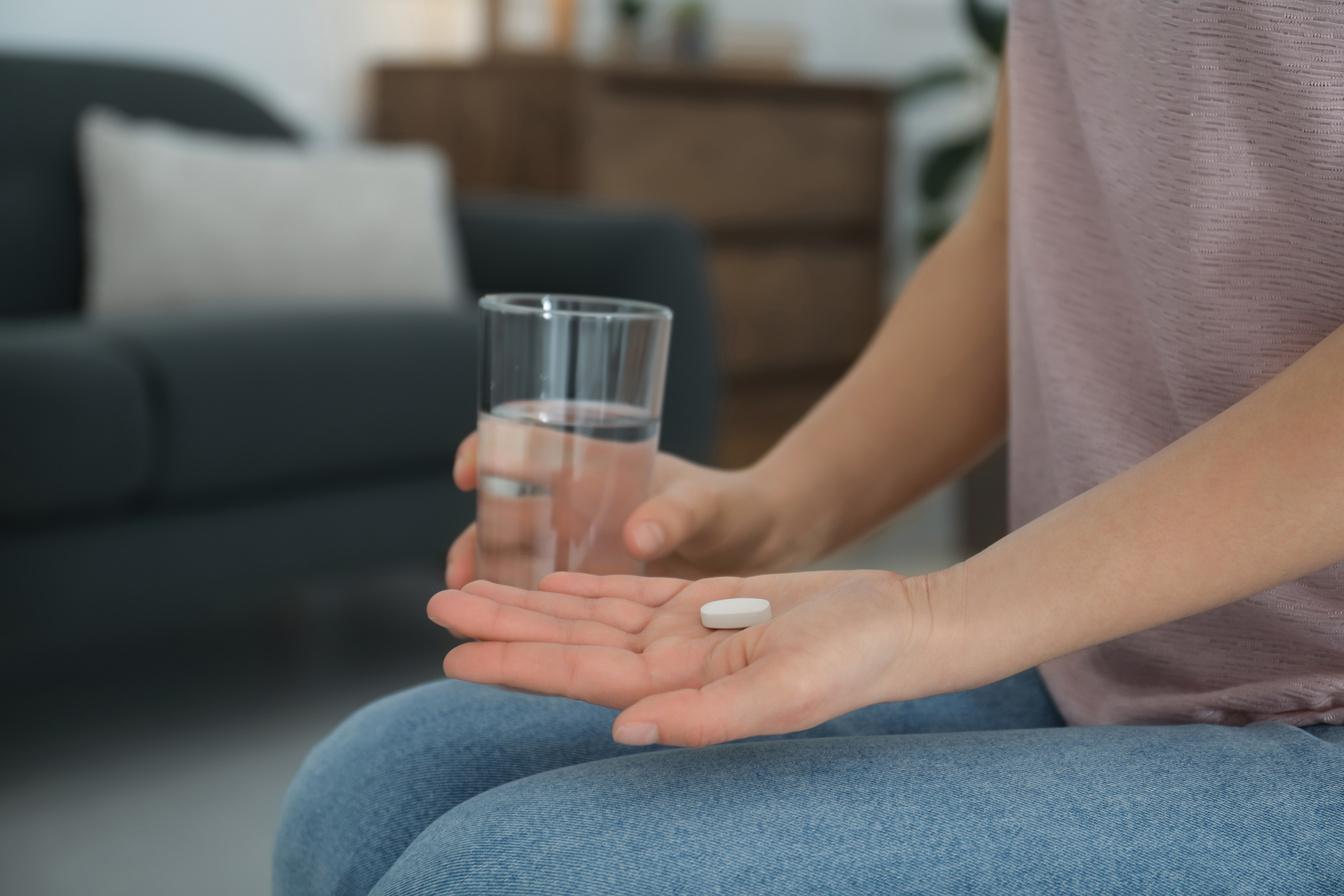
Aleve or Advil DO NOT USE ASPIRIN OR TYLENOL
Menstrual Pad DO NOT USE TAMPONS
Heating Pad / Hot Water Bottle Food.
No heavy meals and No Alcohol
Your Support System! Physically or Virtually.
Mifepristone + Misoprostol
95% to 99% Effective up to 12 weeks of pregnancy
Step One:
Under 9 Weeks:
Swallow 1 Mifepristone tablet.
Over 9 Weeks:
Swallow 1 Mifepristone tablet, wait 4 hours, then take an additional Mifepristone Tablet
Wait at least 24 hours but no more than 48 hours to proceed to step 2.
Step Two
Place 4 Misoprostol pills between the gums, and cheek, and leave for 30 minutes. The pills will begin to dissolve.
Do NOT swallow the pills until AFTER the thirty 30 minute mark.
Misoprostol Alone
Dosage: 12 (200MG) Tablets
Step One:
Place 4 Misoprostol pills under the tongue and let dissolve for 30 minutes. Do NOT swallow the pills until AFTER the thirty 30 minute mark.
Step Two:
Repeat this step every three 3 hours, until all 12 pills have been taken.
Do NOT swallow the pills until AFTER the 30 minute mark.
Continue reading on next page >
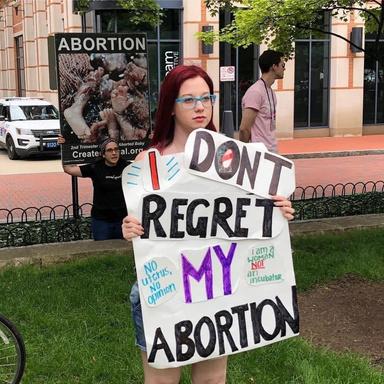
Josie grew up in Ohio and now resides in northwest Georgia. After her own abortion in 2018, she has made it her goal to help people through their abortion experiences. When not advocating, she keeps reptiles and has 3 dogs at home
1. How has the overturning of Roe vs. Wade impacted women's access to safe and legal abortion services in different regions of the country?
Since the overturning of Roe, each state has been given the ability to make their own laws on abortions Some states have amendments that automatically triggered a ban when Roe fell, others then moved to ban abortions in their respective state. 24 states have banned abortion or are likely to, in the year since Roe fell.
2. What specific barriers have emerged or intensified for marginalized communities, such as low-income women, women of color, or rural women, in accessing reproductive healthcare?
The biggest issue with the restrictions at hand is that abortion costs even more than before So we’re talking about the cost of the procedure or medication (s) plus travel costs, which can be literal states away Plus missing work, as abortion is not covered under a serious health condition, and any costs for food in the process, hotel stays, and childcare if needed Abortion funds can be utilized, but since Roe fell, requests for assistance have skyrocketed and many funds are unable to keep up with demand.
3. Can you share a particular story or moment that has stood out to you in the past two years, highlighting the impact of restricted abortion access on an individual woman or a community?
I have had several people reach out to me and say “I can’t afford an abortion” or “I need one and can’t get an appointment in time” This is all too common as clinics are so booked out for weeks if not months, and we are generally running on a time limit In several instances, I have assisted these people in managing their own abortion at home, using pills to ensure we can get it done in time and pass the barriers such as clinics or full-out bans in states. bans are enacted to scare you, but there are options and you do have support!
4. How has your involvement in advocacy organizations shaped your efforts to support women's reproductive rights in this post-Roe?
I think it’s helped me understand the ways we can continue to help, even if the state and United States government seems to be working against us. People have rallied together in ways I’ve never seen before and while the over turn was devastating, a lot of people knew this may happen and were able to prepare somewhat or really come together to help eachother in the after effects.
5. In your interactions with women seeking abortion services, what are some of the most common concerns or fears they express?
Concerns and fears are often whether the medications are safe, whether they can obtain the services needed, the costs and protecting their privacy In my abortion experience, I was very open and willing to share, to help people cope and provide assistance in obtaining abortions for those who need the help Not everyone is that comfortable and that’s totally okay. While fear of medication is completely understandable, mifepristone and misoprostol are more safe than taking ibuprofen for a headache. I personally keep a list of funds and assistance options for people who need help with other the financial aspect, and having someone who understands and is willing to go step by step through it with you, really seems to set them at ease
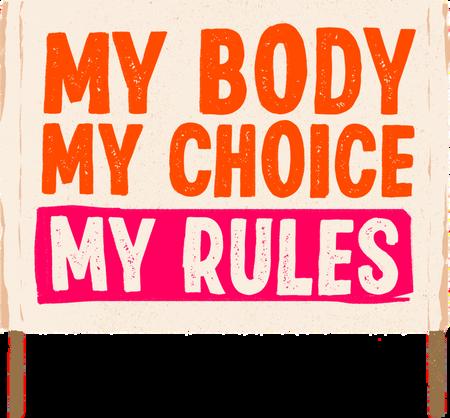
The Supreme Court is set to hear a case that could limit access to abortion pills nationwide Anti-abortion groups and conservative lawmakers are pushing for the reversal of FDA regulations that eased access to these pills, allowing telemedicine prescriptions and mail delivery Mifepristone, a key component, is used in the majority of abortions in the U.S. The number of clinics offering telemedicine services and mailing abortion pills has increased significantly in recent years A decision in favor of anti-abortion groups and conservative lawmakers would restrict access to the pills for millions, even those in blue states that protect abortion rights, and put more pressure on the dwindling number of clinics that provide surgical abortions at a time they’re struggling to serve a wave of people traveling from states with abortion restrictions, particularly in the South.
6. As an advocate, how do you personally cope with the emotional toll of seeing women's rights threatened and restricted?
While our work is never done, it is so important to listen to your mental health and understand when to take a step back and breathe I have also surrounded myself with amazing, incredible advocates, from all over the country, so they understand the struggles and emotions behind advocating for abortion You have to make sure YOU are in a good place before you can help others You can’t pour from an empty cup. I am also an avid reptile keeper and dog owner, and they always bring me back down to earth.
7. Can you share insights into any strategies or tactics that have proven effective in mobilizing support for reproductive rights within your community?
Put forth the effort Make events in your community Even if ONE person shows up, someone saw you and you are putting yourself out there It seems frustrating and slow but every event, every post, every person you speak to about abortion, goes and speaks to 3 more people about abortion. It’s the “all good things take time” It doesn’t happen overnight
8 What are the most effective ways to engage with policymakers and legislators to advocate for policies that protect and expand reproductive rights?
Calling your local reps and senators! Growing up in Ohio, I spoke to our reps several times on abortion issues and the more pressure you put on them, the more they understand or listen per se. In the end, they don’t want to upset their constituents, that looks bad on them Keep up the pressure, and make sure you come in with a cool head and a well out together argument As easy as it is to get heated and go off the rails, cooler heads always prevail!
9. Looking toward the future, what structural changes or reforms are necessary to ensure lasting progress in securing reproductive rights for all individuals?
We MUST elect reproductive champions into our government positions Before voting or supporting a candidate, see how they feel on abortion and their thoughts on codifying abortion in America. And we need to run! We are powerful and remarkable. The more abortion positive candidates we have, the less taboo and the less anti abortion politicians have a hold on the system! I am also a firm believer in more people advocating and understanding at home abortion and how you can manage that on your own. It needs to be educated to more people and talked about more often!
10. Lastly, What resources or tools do you recommend for individuals who want to become more actively involved in advocacy for reproductive rights but may need help knowing where to start?
Planned parenthood always has great resources, whether it be working as an escort or managing text messages (which is something I prefer to do). Ineeda, Aid Access, and Abortion Access Front are all great resources dedicated to providing abortion and keeping abortion legal in the US. I also highly recommend “new handbook for a post roe America” by Robin Marty. Super informative, and really helps you see where you can focus your efforts and how to do so!
If you are in need of abortion care, abortion resources, or want to know how to get in action, Download our Abortion Resource Guide.
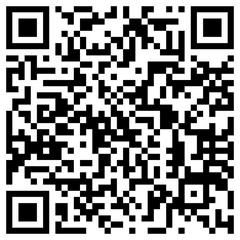
INTENSE BLEEDING OR INTENSE CRAMPING. DIZZINESS
VOMITING DIARRHEA
NAUSEA
LIGHT FEVER AND CHILLS HEADACHES
In most cases, the worst of the bleeding and cramping typically lasts up to 24 hours. It is common to feel tired for one to two days after taking misoprostol, but most people are able to go back to normal activities after the bleeding and cramping have stopped. If there is no bleeding within 24 hours of taking misoprostol, individuals should call their health care provider
Medication abortion is considered a safe procedure. Complications are rare, but they can include, but are not limited to:
Pregnancy tissue being left in the uterus
Blood clots in the uterus.
Bleeding too much or for too long
Infection
An ongoing pregnancy.
These issues can often be addressed with medication or other treatments.
Consult your doctor if you are experiencing:
An allergic reaction to either medication (rash, hives, itching, swollen or blistered skin with or without a fever, wheezing, and trouble swallowing, among others
Excessive bleeding (saturating two pads per hour for more than two hours)
Severe stomach pain
Severe diarrhea
Serious vaginal irritation
Severe pelvic pain
Intense or Fast heartbeat.
Having a Self-Managed Abortion is completely safe.
There are States with limited to no access to abortion medication, however there are ways to access medication through mail order pharmacy.
The outcome of the recent FDA case could sharply limit access to abortion nationwide, even in states that still allow it. Fourteen states have banned abortion in almost all circumstances.
It has happened where people have been arrested for using abortion medication where there are restrictions.
If medical attention is needed, tell medical personnel you are having a miscarriage. Do not disclose your abortion.
Miscarriage and Abortion Hotline: (833)246-2632.
Society too often perceives sex workers as helpless victims or drug addicts participating in a degrading and immoral act These harmful stereotypes fail to acknowledge the agency and autonomy of many women in the industry A significant amount of sex workers enter the industry voluntarily and make informed choices about their work. Many sex workers actively choose their profession as a means of financial independence, empowerment, and autonomy rather than exploitation
It's essential to recognize that coercion and exploitation are still very prevalent within the sex work industry. It's equally vital to understand that criminalization of sex work exacerbates these issues.
Criminalization drives sex work underground, making it difficult for workers to seek legal protection and access support services. Despite legal restrictions, the demand for commercial sex remains high, increasing the vulnerability of marginalized individuals to be coerced or trafficked into the industry. Decriminalization efforts have shown promise in addressing these issues by shifting the focus from punishment to harm reduction and support for sex workers Let’s dive into why decriminalization is not just a matter of rights but also a step toward safer and fair communities.
Decriminalization of sex work is about recognizing the human rights of individuals involved in the industry Laws and legal restrictions place barriers to sex workers’ access to support services, as they will face legal repercussions, discrimination, or even violence. Decriminalization removes these barriers and ensures that sex workers have access to legal protection, healthcare, and support services Under decriminalization, sex workers can seek legal recourse if they face violence or exploitation without fear of prosecution. They can access essential healthcare services, including HIV & STD testing, contraception, and counseling, improving their overall well-being
Additionally, support services such as financial counseling, housing assistance, childcare assistance, and business training can empower sex workers to make informed choices and foster autonomy
Decriminalization promotes better health outcomes by allowing sex workers to work safely and access healthcare without fear of arrest or discrimination. Workers can negotiate safer working conditions, such as using condoms consistently, screening clients, and working in well-lit areas Additionally, they can seek regular healthcare, including STI testing and treatment, contraception, and reproductive health services
Increased access to healthcare not only benefits sex workers themselves but also contributes to public health within the broader community. Health organizations can more effectively provide essential information, resources, and support to protect all involved parties
Decriminalization of sex work prioritizes public health and creates a safer environment for everyone
Workers are more likely to report and seek assistance when they experience violence or abuse without the fear of legal consequences, discrimination, or more violence. Violence, rape, and sexual assault by both customers and law enforcement are everyday realities that sex workers face Decriminalization reduces the opportunities for sexual violence, police misconduct, and brutality against sex workers while shifting focus towards harm reduction and support. Constructive interactions between law enforcement and sex workers improve safety and reduce the risk of violence and abuse
Trafficking is a crime that preys on individuals who are economically disadvantaged, marginalized, or lacking social support networks These victims are in a cycle of exploitation, their autonomy stripped away, and human rights violated The criminalization of sex work doesn't just fail to address trafficking; it increases the issue. Police focus more on arresting sex workers than going after traffickers making it hard for victims to get assistance This fear of punishment allows traffickers to continue to exploit and enslave victims Criminalization fosters partnership between law enforcement and traffickers. Traffickers often provide financial gain to police officers to ignore their victim’s illicit activities The conspiring isn't just underground Traffickers extend their reach into legitimate venues, coercing victims into labor slavery by confiscating their hardearned income. Club owners often play a complicit role in this exploitation, allowing traffickers to operate within their establishments in exchange for, you guessed it, money
Trafficking victims are distinct from consensual sex workers, as trafficking often involves individuals who never intended to enter the sex industry and have been coerced into it against their will.
Decriminalizing sex work will create an environment where sex workers can seek assistance and report trafficking without the fear of arrest or violence This transparency makes it harder for exploitation and allows for better oversight of collusion between law enforcement, club owners, and traffickers. Law enforcement officers are less likely to accept bribes when the activity of trafficking victims is no longer considered a crime Focus shifts from punishing victims to holding perpetrators accountable, providing a pathway to dismantle the structures of sex trafficking.
Women of color and LGBTQIA+ women often bear the brunt of criminalization due to overlapping systems of discrimination. Transgender women of color experience heightened levels of discrimination in both their daily lives and within the sex work industry
Marginalized groups face disproportionate barriers to protection and stable employment due to systemic discrimination based on factors like gender, sexual orientation, and race As a result, individuals may have fewer options for earning income and meeting their basic needs. Unemployment, poverty, and limited access to education and job opportunities create barriers where the flexibility of sex work is the only means to access necessities
Decriminalization allows workers to operate openly and access labor rights such as fair wages, safe working conditions, and protection from exploitation and discrimination Sex work recognized as legitimate labor promotes economic stability and independence among marginalized communities, addressing the systemic inequalities perpetuated by criminalization.
Traditional jobs with stable hours, benefits, and job security are becoming replaced by uncertain arrangements and increased annual layoffs Growth and push towards the gig economy, globalization, and outsourcing contribute to job insecurity as companies seek lower labor costs Challenging the stigma and discrimination often associated with sex work can break down barriers to employment and unfair treatment of workers in all industries, leading to increased job opportunities and security for all individuals
Decriminalization establishes a precedent for acknowledging labor rights in industries that society has historically stigmatized Just as the labor movement fought for the rights of factory workers and laborers in the past, the decriminalization of sex work paves the way for broader labor justice initiatives across the United States. Promoting the inclusion of sex workers in the labor force and protecting their rights solidifies that all workers, regardless of the nature of their work, are entitled to fair treatment and equal opportunities
Removing legal barriers to sex work acknowledges the agency and autonomy of sex workers, trafficking victims, marginalized communities, and the working class while facilitating access to essential services and protections. Decriminalization is vital to understanding the complexities within the industry, addressing the multifaceted issues surrounding sex work, and working to solve them
ESTABLISHMENTS ARE REQUIRED TO
INSTALL AND MAINTAIN PANIC BUTTONS IN BATHROOMS, DRESSING ROOMS, AND EACH ROOM WHERE WORKERS COULD BE ALONE WITH CUSTOMERS.
ESTABLISHMENTS MUST HAVE AT LEAST ONE SECURITY OFFICER ON SITE DURING OPERATION HOURS.
ESTABLISHMENTS ARE REQUIRED TO IMPLEMENT A TRAINING PROGRAM IN WHICH WORKERS LEARN ABOUT TOPICS SUCH AS SEXUAL HARASSMENT, IDENTIFYING HUMAN TRAFFICKING, DE-ESCALATING CONFLICT, AND FIRST-AID.
PROVIDE APPROPRIATE CLEANING SUPPLIES AT ALL STAGE 8 PERFORMANCE AREAS
EQUIP DRESSING OR LOCKER ROOMS FOR ENTERTAINERS WITH A KEYPAD 10 REQUIRING A CODE TO ENTER.
DISPLAY SIGNAGE AT THE ENTRANCE DIRECTING CUSTOMERS TO RESOURCES ON APPROPRIATE ETIQUETTE.
DISPLAY SIGNAGE IN AREAS DESIGNATED FOR ENTERTAINERS THAT ENTERTAINERS ARE NOT REQUIRED TO SURRENDER ANY TIPS OR GRATUITIES
HAVE WRITTEN PROCESSES AND PROCEDURES ACCESSIBLE TO ALL EMPLOYEES AND ENTERTAINERS FOR RESPONDING TO CUSTOMER VIOLENCE OR CRIMINAL ACTIVITY, INCLUDING WHEN POLICE ARE CALLED; EJECTING CUSTOMERS WHO VIOLATE CLUB POLICIES, INCLUDING INTOXICATION OR OTHER INAPPROPRIATE OR ILLEGAL BEHAVIOR
ENSURE HOUSE FEES DO NOT EXCEED $150 OR 30% OF HOW MUCH AN ENTERTAINER EARNS WITHIN AN EIGHT-HOUR SHIFT, DEPENDING ON WHICH IS SMALLER.
ELIMINATE FEES FOR FAILURE TO APPEAR INTEREST ON LATE OR UNPAID FEES
UNPAID BALANCES OR DEBT TO THE ESTABLISHMENT
& MORE!
CHECK OUT WHO MADE IT POSSIBLE @STRIPPERSARE WORKERSWA
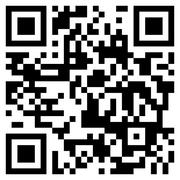
READ THE BILL HERE
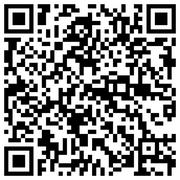 SB 6105 - Creating Safter Working conditions in adult entertainment establishments.
SB 6105 - Creating Safter Working conditions in adult entertainment establishments.
Living in the bible belt, an attack on LGBTQ+ rights is nothing new. Farright conservative ideology and proMAGA sentiment plague our government in Georgia. Despite this, the LGBTQ+ community remains resilient and victorious as GA lawmakers failed to advance 20 antiLGBTQ+ bills. This milestone achievement not only safeguards the rights of LGBTQ+ individuals but also reflects a broader shift in public sentiment against discriminatory agendas.
This defeat was not a stroke of luck but the result of tireless advocacy and collective action. Organizations, grassroots activists, community members, and allies, rallied against the proposed legislation, making their voices heard through protests, testimonies, and community engagement.
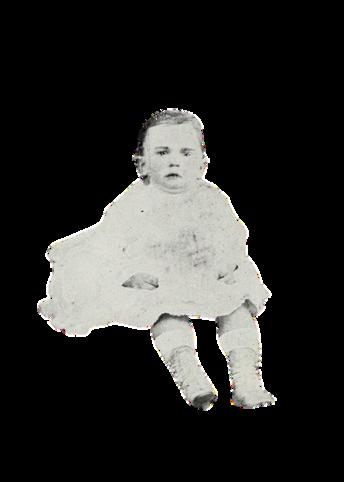
1927
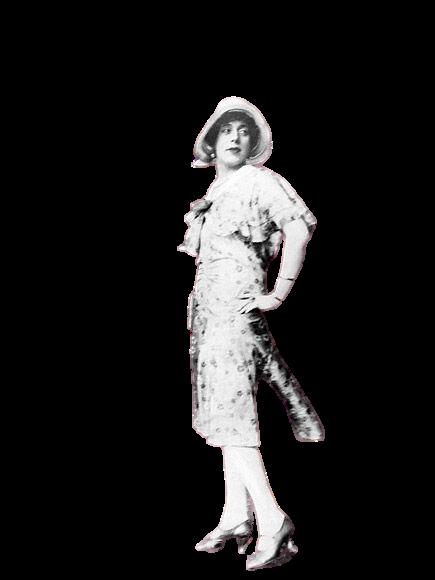
Amidst the tension waiting for the legislative session to close, the local LGBTQ+ community (and us!) gathered to commemorate Trans Week of Visibility at the State of Trans Atlanta Event, hosted by SnapCo (Solutions Not Punishment Collaborative) at City Hall. This event served as a rallying point for the trans community and allies, providing a platform to highlight the challenges and triumphs of transgender individuals.
Speakers and participants at the event engaged in breakout discussions on pressing issues such as safety, healthcare, housing and job resources, legislation, community, and advocacy. Many concerns were addressed about the pervasive discrimination and violence faced by trans individuals within our community, highlighting the urgent need for support and solidarity.
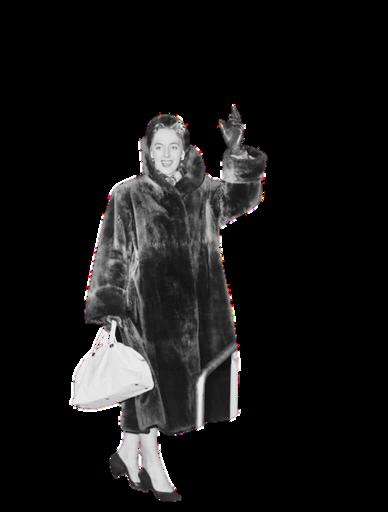
1970
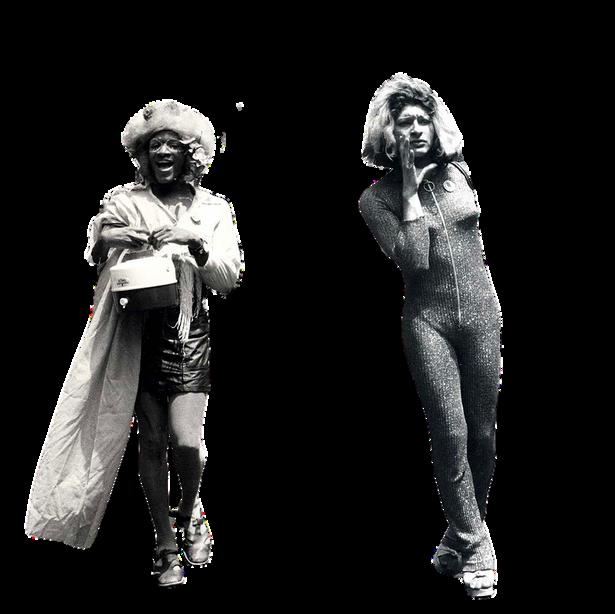

One of the key issues addressed at the event was the importance of genderaffirming care for transgender youth. The defeat of House Bill 1170, which sought to restrict access to such care for transgender youth, marked a significant victory for transgender rights. Advocates emphasized the transformative impact of genderaffirming interventions, which affirm individuals' identities and contribute to their overall well-being and happiness.
However, the fight for equality is far from over. Despite these recent victories, challenges persist, including ongoing efforts to erode LGBTQ+ rights and the need for greater support for marginalized communities. Incidents of violence against trans people serve as a grim reminder of the dangers they confront simply to live authentically
Trans individuals do not feel safe in our community. Trans women do not feel safe going outside. They are not safe here. According to reports from the National Coalition of AntiViolence Programs (NCAVP), Atlanta witnessed a concerning surge in violence against trans people in recent years, with transgender women of color being disproportionately affected. Shocking testimonies from community members reveal instances of unwarranted searches, verbal abuse, and physical assault during routine encounters with law enforcement. Additionally, a comprehensive study conducted by local advocacy groups trans individuals in Atlanta are three times more likely to experience police violence compared to their cisgender counterparts. Trans individuals face alarming rates of harassment, discrimination, and brutality at the hands of individuals and law enforcement, perpetuating a cycle of fear and distrust.
Throughout history, transgender women have displayed unwavering determination, courage, and resilience in their fight for equality They have refused to be silenced, paving the way for progress and inspiring generations to come. Let us highlight incredible achievements, for their contributions have illuminated the past, shaped the present, and will continue to





In addition to crucial safety concerns, there is an urgent need for greater job opportunities, networking resources, and housing support tailored to the unique needs of trans individuals. Transgender individuals face a harsh reality in the job market, where discrimination based on gender identity often closes off traditional avenues of employment. Despite strides in LGBTQ+ rights, systemic biases persist, leaving trans individuals, especially women of color, disproportionately affected by unemployment, underemployment, and lower wages. Faced with limited options, many find themselves pushed towards sex work and hustle culture as a means of survival. A study published in the American Journal of Public Health in 2016, using data from the National HIV Behavioral Surveillance system, found that transgender women were more likely to engage in sex work than cisgender women. The study also revealed that transgender women of color were particularly overrepresented in the sex work population.
Getting out of sex work is already difficult without the additional barriers of being trans and/or a person of color. Resources are slim and there’s very little legislation protecting sex workers, mix that with the constant legislative attack on transgender rights and you have a giant barrier to opportunity with a constant threat to safety.
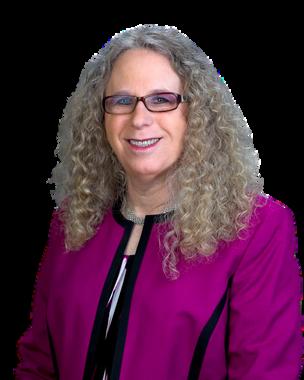

Despite efforts by advocacy groups and community members to raise awareness and demand action, the systemic challenges of transphobia and discrimination persist, contributing to an environment where trans individuals continue to be targeted and marginalized. We must take meaningful action to support our transgender community members in their pursuit of equality, safety, and opportunity It's time to stand up and advocate for their rights and visibility, creating a more inclusive environment for everyone. But advocacy alone is not enough. We must also provide practical assistance, offering support in finding job opportunities, housing options, and accessing valuable resources. Your knowledge and connections can be invaluable in bridging the gap between resources and those in need.
Do you know of any job openings suitable for transgender individuals? Have any housing options available? Or perhaps you're aware of valuable resources that could offer support?
Reach out to us at communityunitynetwork4change@gmail.com with any leads, resources, or opportunities you may have. Together, let's build a stronger, more inclusive Atlanta for all

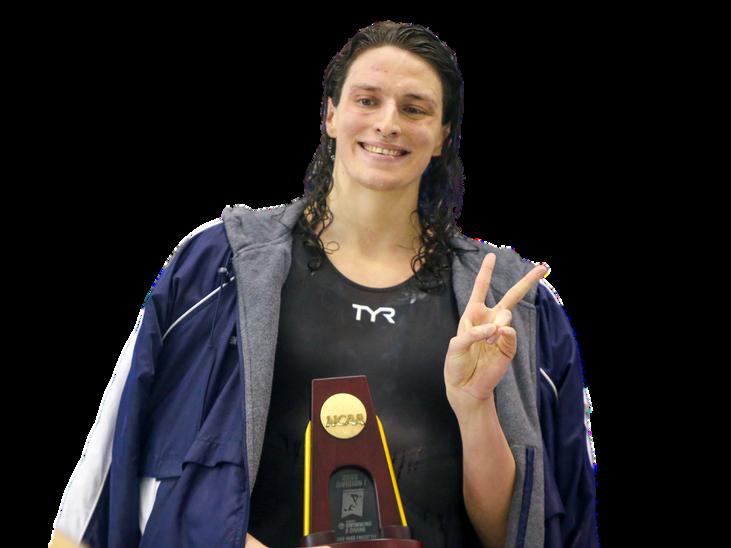

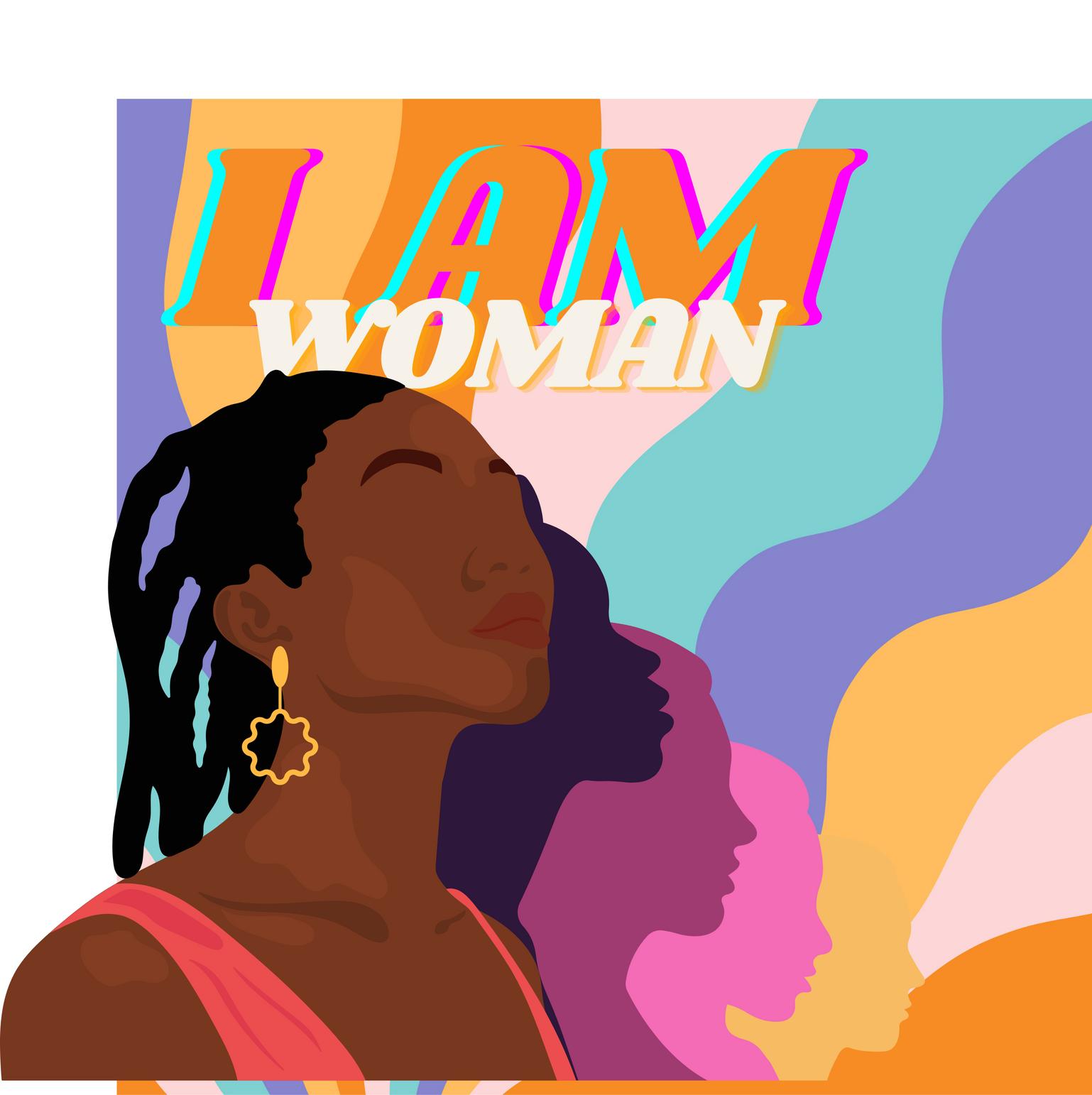
It's important to recognize that neurodivergence can manifest differently in girls and often presents unique challenges and strengths. Here are signs and traits of neurodivergence in girls and women.
Girls and Women with neurodivergence often excel at masking their differences in social situations, They may mimic the social behaviors they observe, blending in with their peers. This can lead to exhaustion from constantly "performing" neurotypicality
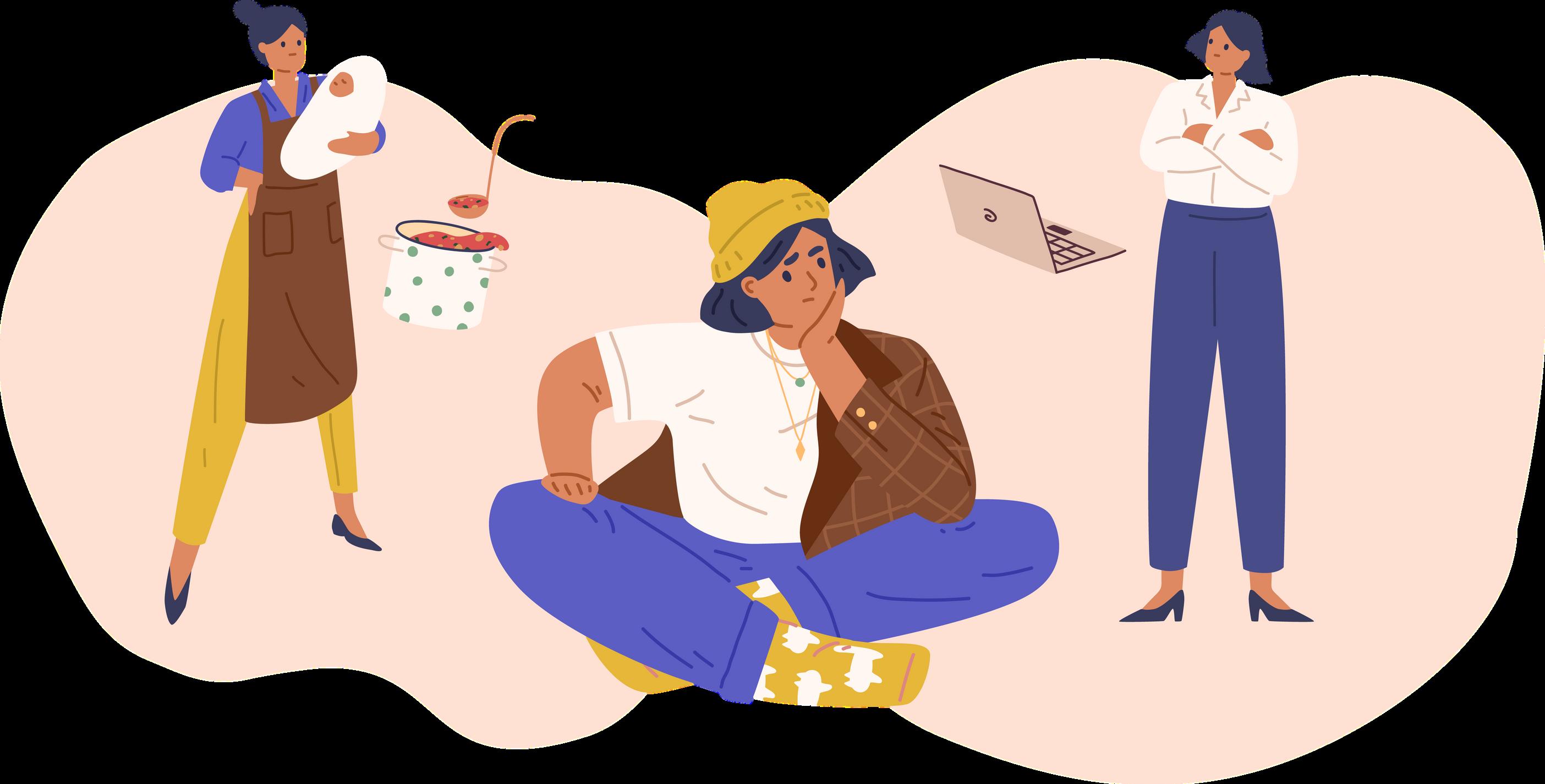
Girls and women may struggle to interpret subtle social cues, such as facial expressions or tone of voice, leading to misunderstandings in social interactions.
Recognizing these gender-specific signs is crucial for early identification, support, and empowerment of neurodivergent girls and women.
DIFFICULTY WITH EMOTIONAL REGULATION
Neurodivergent girls and women may experience challenges in emotional regulation, exhibiting intense reactions to seemingly minor events, struggling to identify and express emotions accurately, and easily becoming overwhelmed in stressful situations.
Executive dysfunction refers to challenges in tasks such as organization, time management, and prioritization, impacting daily functioning and productivity.

Hyperfocus refers to intense absorption in tasks, leading to heightened productivity and creativity but sometimes causing difficulties in shifting attention away, potentially leading to procrastination on other responsibilities.
While some may struggle to read social cues, others may experience hyperempathy, feeling others' emotions intensely and sometimes to the point of overwhelming distress
While sensory sensitivities are common, they may manifest differently in girls and women, such as sensitivity to certain textures in clothing or discomfort with grooming routines
Neurodivergent girls and women may internalize their struggles rather than exhibiting external behaviors typically associated with neurodivergence
Neurodivergent women may develop intense interests in social dynamics, relationships, or human behavior rather than stereotypical "male" interests, finding solace and empowerment in these pursuits, which can become sources of passion, creativity, and identity.
IT'S ESSENTIAL TO APPROACH NEURODIVERSITY WITH AN INTERSECTIONAL LENS, CONSIDERING HOW FACTORS SUCH AS RACE, CULTURE, AND SOCIOECONOMIC STATUS INTERSECT WITH GENDER TO SHAPE INDIVIDUALS' EXPERIENCES
Neurodivergent women may exhibit repetitive behaviors like rocking or hand-flapping when stressed, adhere to strict routines for comfort, and engage in collecting or arranging objects in specific patterns
Girls and women with neurodivergent traits often face underdiagnosis or misdiagnosis due to diagnostic criteria primarily reflecting male presentations, leading to their invisibility in clinical assessments and treatment protocols
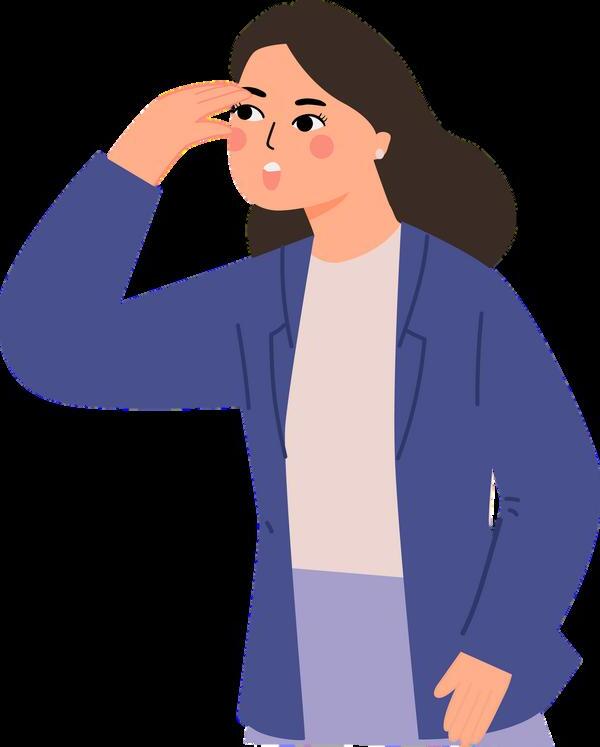
Throughout history, women have been at the forefront of societal change, advocating for progress, equality, equity, and justice. Female influence has become increasingly evident in the environmental movement, where women leadership has brought forth initiativesforamoresustainableand eco-conscious society. From grassroots activists to high-profile policymakers, women have made impactful contributions to environmental conservation, climate action, and sustainable development
 Dr. Rebecca Cole
Dr. Rebecca Cole
physician. Born in 1848, Dr. Cole was one of the first people to correlate poor health with environmental issues. After realizing that many poor Black communities were suffering due to terrible living conditions, Dr. Cole began advocacy work for the “Cubic AirSpace Laws.”
One of the most notable figures in the environmental movement is Rachel Carson, whose groundbreaking book Silent Spring sparked a global awakening about the dangers of indiscriminatepesticideuse.
Published in 1962, Carson's work uncovered the harmful effects of pesticides on ecosystems and human health, leading to widespread public outcry and eventually the banning of DDT in many countries. Carson's courage in challenging powerful chemical industries and advocating for environmental protection helped lay the foundation for modern environmentalactivism

In the realm of grassroots organizing, WangariMaathaistandsoutasabeacon of inspiration. The founder of the Green Belt Movement in Kenya, Maathai mobilized thousands of women to plant trees, combat deforestation, and promote sustainable landmanagementpractices.
Beyond environmental conservation, Maathai empowered women economically and socially, demonstrating the interconnectedness of environmental sustainability and human well-being. Her efforts earned her the Nobel Peace Prize in 2004, making her the first African woman to receivethishonor.


In the political ground, women leaders have been instrumental in shaping environmental policies and driving international collaboration within climate change. Christiana Figueres, the former Executive Secretary of the United Nations Framework Convention on Climate Change (UNFCCC), played a pivotal role in initiating the landmark Paris Agreement in 2015. Figueres's leadership and diplomatic insight were essential in bringing together diverse stakeholders and fortifying commitments from nearly 200 countriestomitigateglobalwarming.

In the corporate sector, women leaders are driving innovation and sustainability initiatives within industries traditionally associated with environmental harm. Patagonia's former CEO, Rose Marcario, has been a vocal advocate for corporate responsibility and environmental activism. Under her leadership, Patagonia has implemented regenerative agriculture practices, prioritized fair labor standards, and donated millions of dollars to grassroots environmental organizations.

On the conservationist side, Jane Goodall, and Dian Fossey have been major players. Jane Goodall focuses in chimpanzee research and conservation advocacy, while Dian Fossey studied and advocated to protect the mountain gorillas. Dian travelled throughout Africa, advocating against poachers and encroachment of herded cattle. Sadly, in 1985 Dian Fossey was murdered at her cabin in Rwanda. Jane Goodall advocates to protect the chimpanzees and to stop deforestation. In 1977 she instigated the worldwide conservation organization, the Jane Goodall Institute (JGI), and JGI 1991 Roots and Shoots, which encourages young people to participate in environmental preservation projects andinitiatives.

Women are leading the charge in advocating for environmental justice andcommunity resilience Activistslike Winona LaDuke, a Native American environmentalist, have long fought against the exploitation of indigenous lands and resources LaDuke's advocacy has highlighted the disproportionate impact of environmental degradation on marginalized communities and underscored the importance of indigenous knowledge in environmentalstewardship
There are so many amazing and strong women advocating to protect the environment to provide for a healthy and sustainable future. However, despite their invaluable contributions, women in the environmental movement continue to face unique challenges, including gender bias, discrimination, and unequal access to resources and opportunities. Nevertheless, the female resilience, determination, and visionary leadership continue to inspire and catalyze positive change on a global scale.
As we confront the urgent challenges ofclimatechange,biodiversityloss,and environmental degradation, it is clear that women have and will continue to play a central role in shaping a more sustainable and equitable future By amplifying the female voices, supporting female leaders, and fostering inclusive decision-making processes, we can accelerate progress towardsahealthierplanetforall
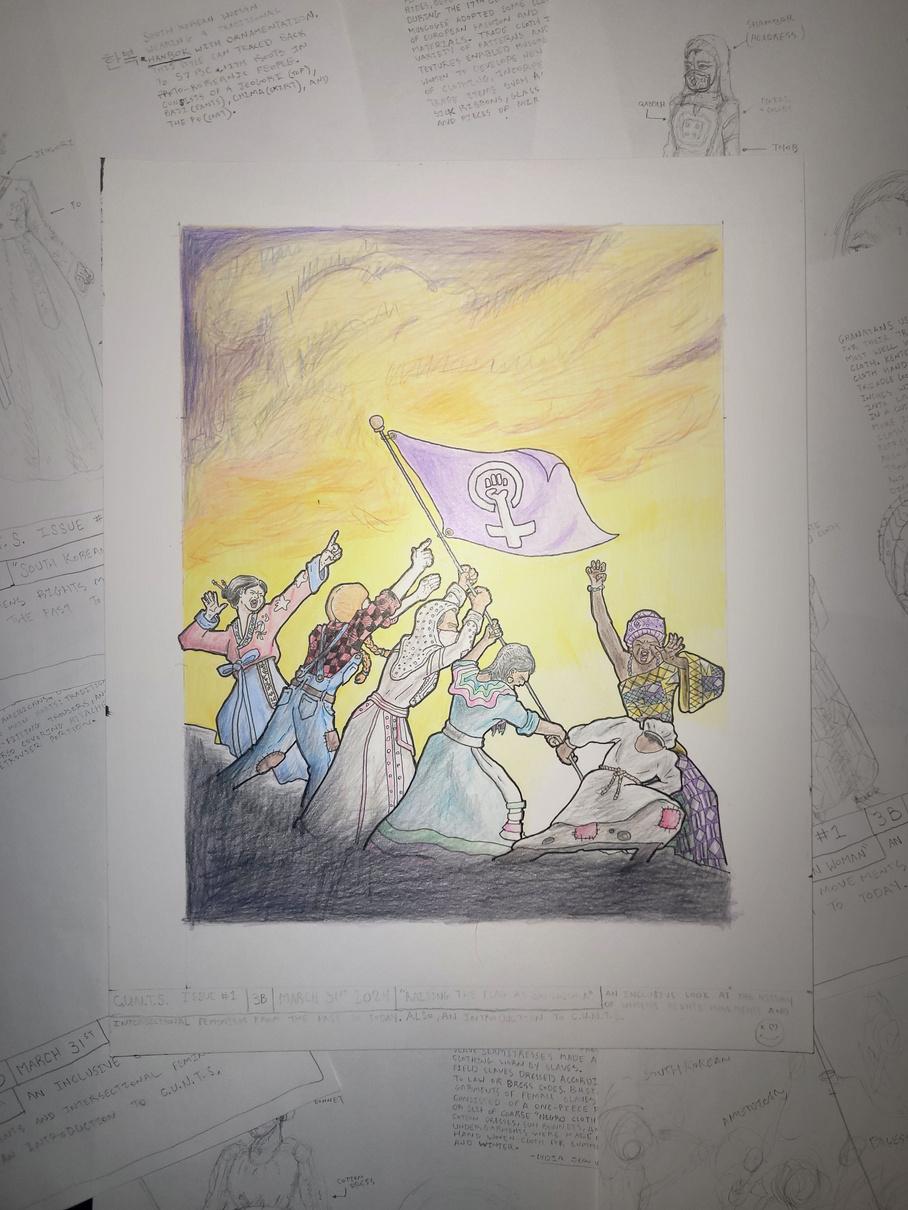 ONBY: JEREMY YURCABA
ONBY: JEREMY YURCABA
For this piece I co-opted the image of the marines raising the flag at Iwo-Jima, an image that has long symbolized resilience, teamwork, and strength in adversity. Qualities that I have seen expressed by the women in my life (with the same grit and fervor of those marines) in their fight to be seen and heard everyday. Each woman in the piece is in her traditional dress (researched as best as I could) to connect the long history of strong, fierce, and graceful women that have fought the good fight to give us a chance at make the world a better place A place demanding of equity, and intersectional understanding of the plight of women everywhere. With a sun rising in the distance, breaking the dawn of a new day where there is hope and abundant opportunity for change.
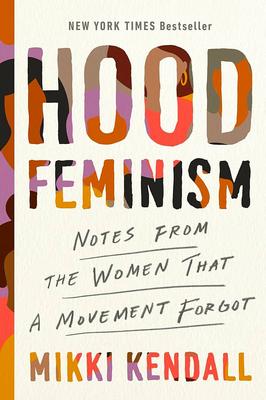 MIKKI KENDALL
MIKKI KENDALL
"A collection of essays taking aim at the legitimacy of the modern feminist movement, arguing that it has chronically failed to address the needs of all but a few women"--
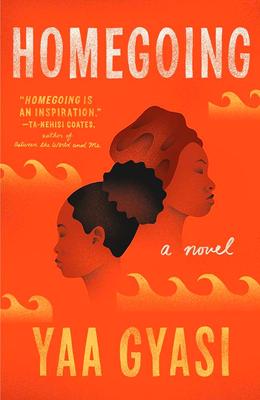 YAA GYASI
YAA GYASI
Homegoing by Yaa Gyasi is an epic historical novel that follows the paths of two Ghanaian half-sisters and their descendants, spanning generations and continents It explores the lasting effects of slavery and colonialism on individual lives and family legacies.
If you are non-black and consider yourself an ally then you absolutely need to read this book. If you date or are friends with black women you need to read this book Even if you don't identify with any of the aforementioned then you still NEED TO READ THIS BOOK!!! Read it, discuss it, share what you've learned. Mikki outdid herself with this one.
Offering a deeply personal perspective into the lasting impact of slavery and colonialism., Each chapter is a revelation, drawing me deeper into a world of love, loss, and resilience It serves as an essential read for understanding the enduring legacy of slavery and colonialism, shedding light on the complexities of human experience and the impact of historical injustices.
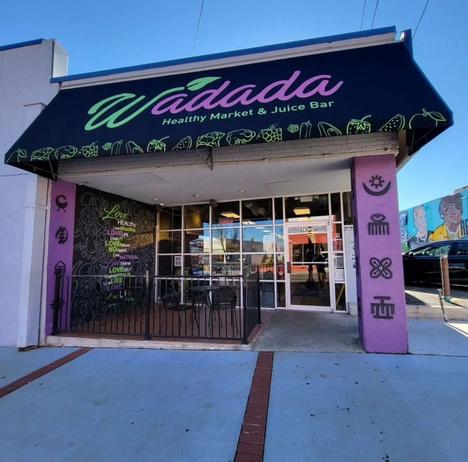
878 Ralph David Abernathy Blvd. Atlanta, Georgia
Atlanta’s first black-owned and womanowned vegan grocery store and juice bar!
“Over 90% of our products and vendors are other local black-owned businesses like ourselves Additionally, all of the fruits, herbs, and delicious foods that make up our small batch and juice bar menus are allnatural, organic, and locally sourced “
“Our doulas are trained to provide birth support for clients who choose to use cannabis during their pregnancy and postpartum. We work closely with our clients and their healthcare providers to ensure that their birth preferences are respected and their cannabis use is safely managed.”

HYDRA VORTEX is a radical collective group based in Atlanta, Georgia. We aim to uplift the voices of people in our community by cultivating spaces for healing, creativity, and collaboration. We believe community healing can be achieved through transformative justice, and we intend to share the stories, ideas, and creations of those who believe in abolishing oppressive systems that cause harm.
REVOLTEDVORTEX@GMAIL COM INSTAGRAM: @HYDRAVRTX

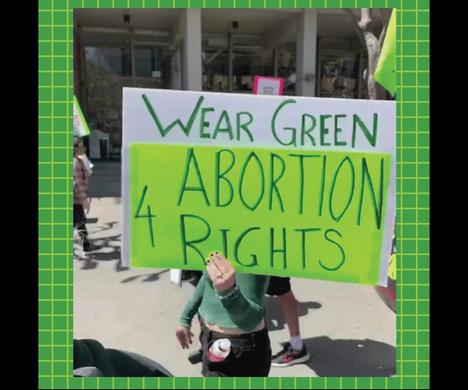
We invite and urge every individual, community, and organization that understands that women need legal abortion on demand and without apology in order to be free to join and/or partner with us to make this a reality.
INFO@RISEUP4ABORTIONRIGHTS.ORG
RISEUP4ABORTIONRIGHTS.ORG
JUST WANTED TO DROP A QUICK NOTE TO SAY A MASSIVE THANK YOU FOR SUPPORTING THE LAUNCH OF CUNTS MAGAZINE. IT'S BEEN A WILD RIDE GETTING THIS FIRST ISSUE OFF THE GROUND, AND YOUR BACKING MEANS THE WORLD TO US.
BIG SHOUTOUT TO ALL THE CONTRIBUTORS WHO HELPED TO MAKE THIS MAG WHAT IT IS. YOUR VOICES ARE WHAT MAKE THIS PUBLICATION STAND OUT, AND WE'RE BEYOND GRATEFUL FOR YOUR CONTRIBUTIONS.
WE PLEDGE TO CONTINUE CHAMPIONING THE VOICES OF THE MARGINALIZED WITH INTEGRITY, EMPATHY, AND AUTHENTICITY. THANK YOU FOR BEING A PART OF THIS EXTRAORDINARY JOURNEY. TOGETHER, WE WILL CONTINUE TO EMPOWER, EDUCATE, AND INSPIRE.
